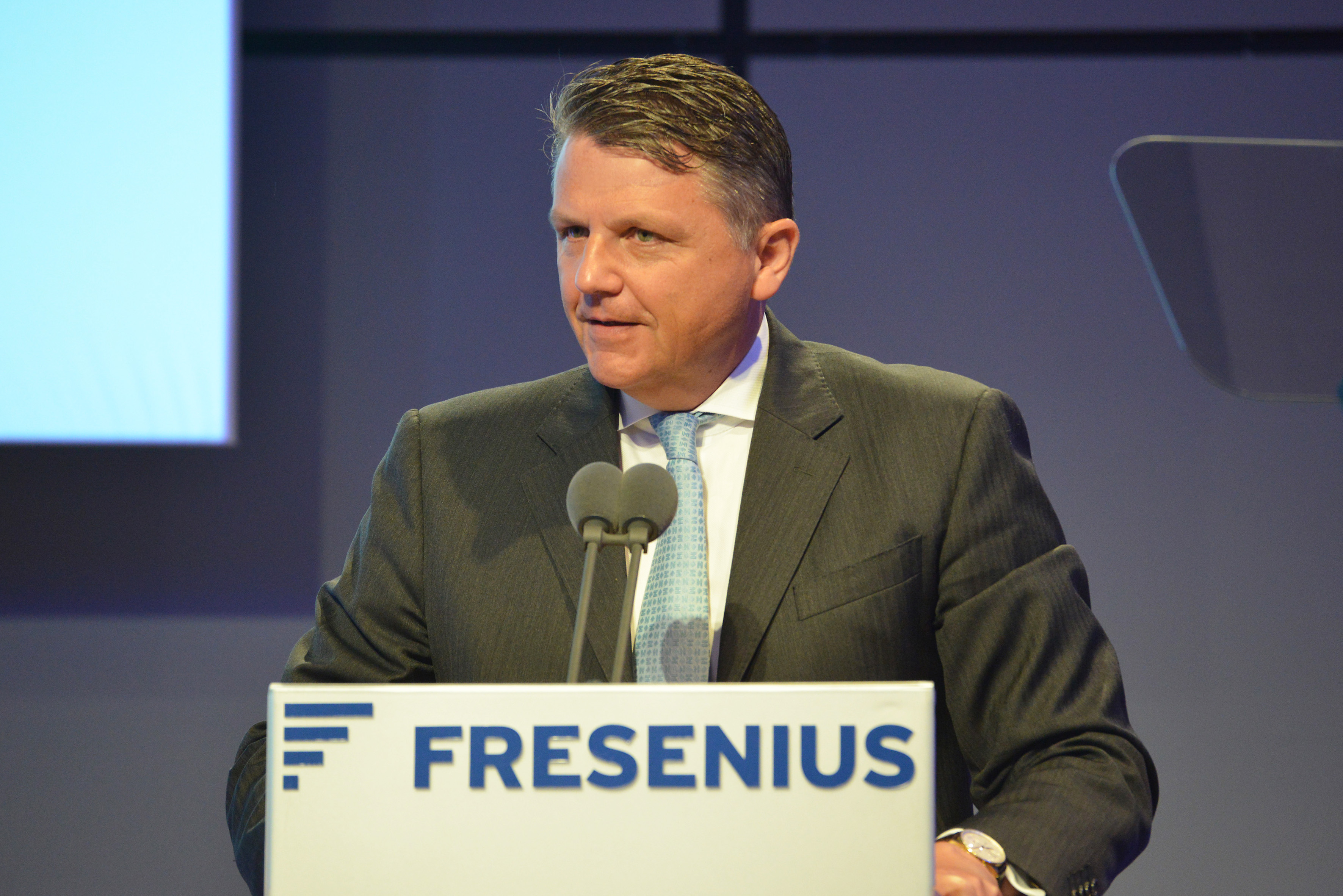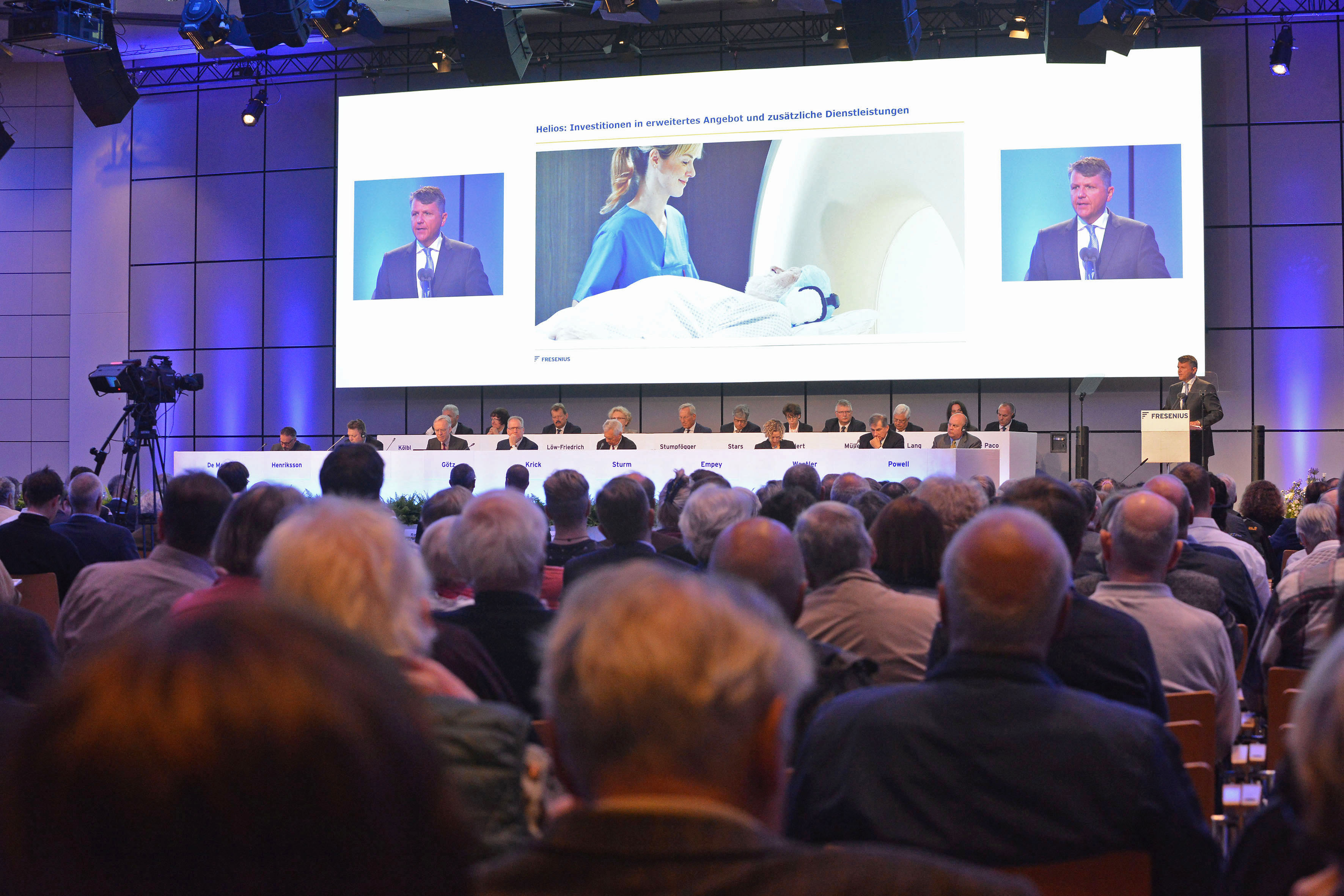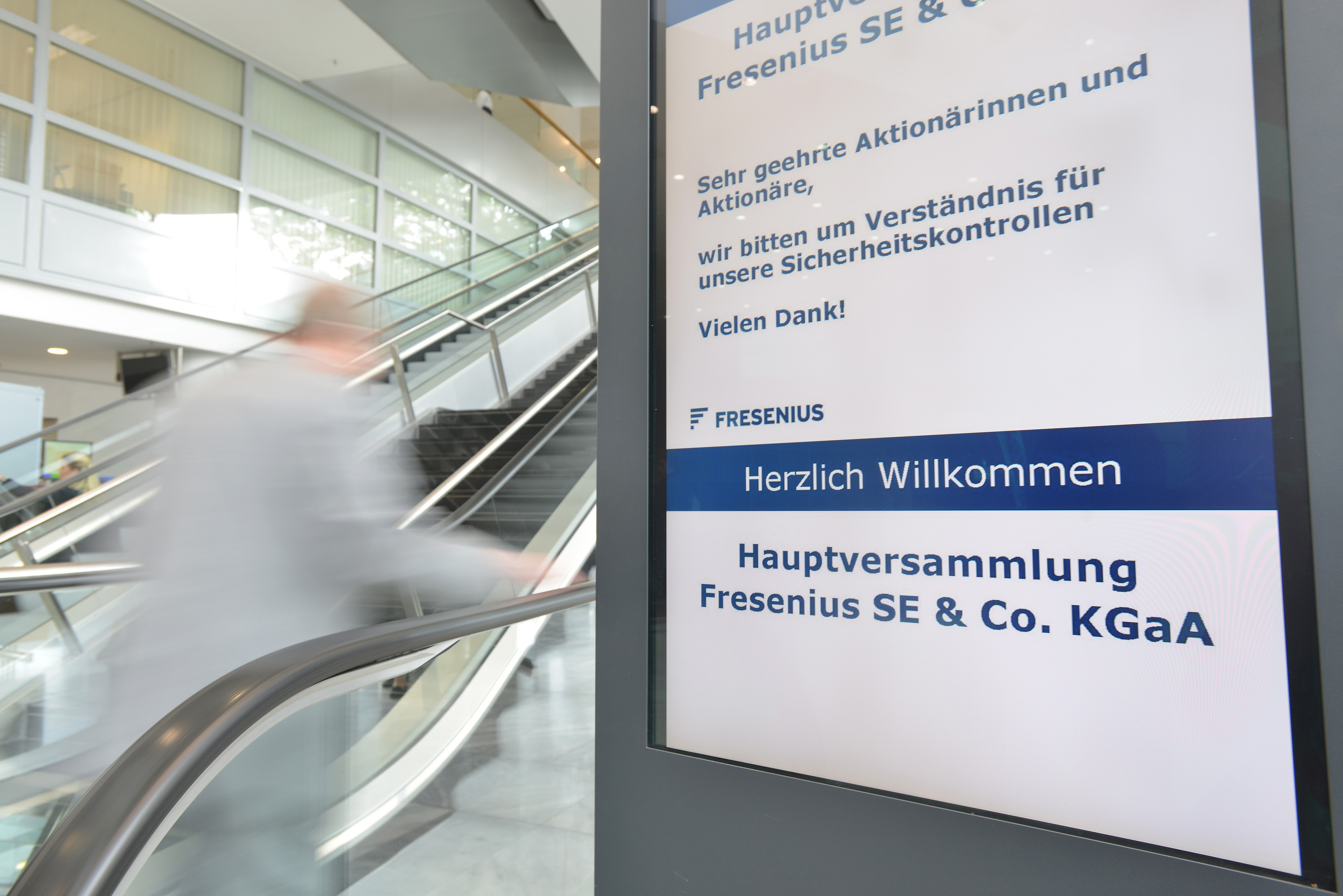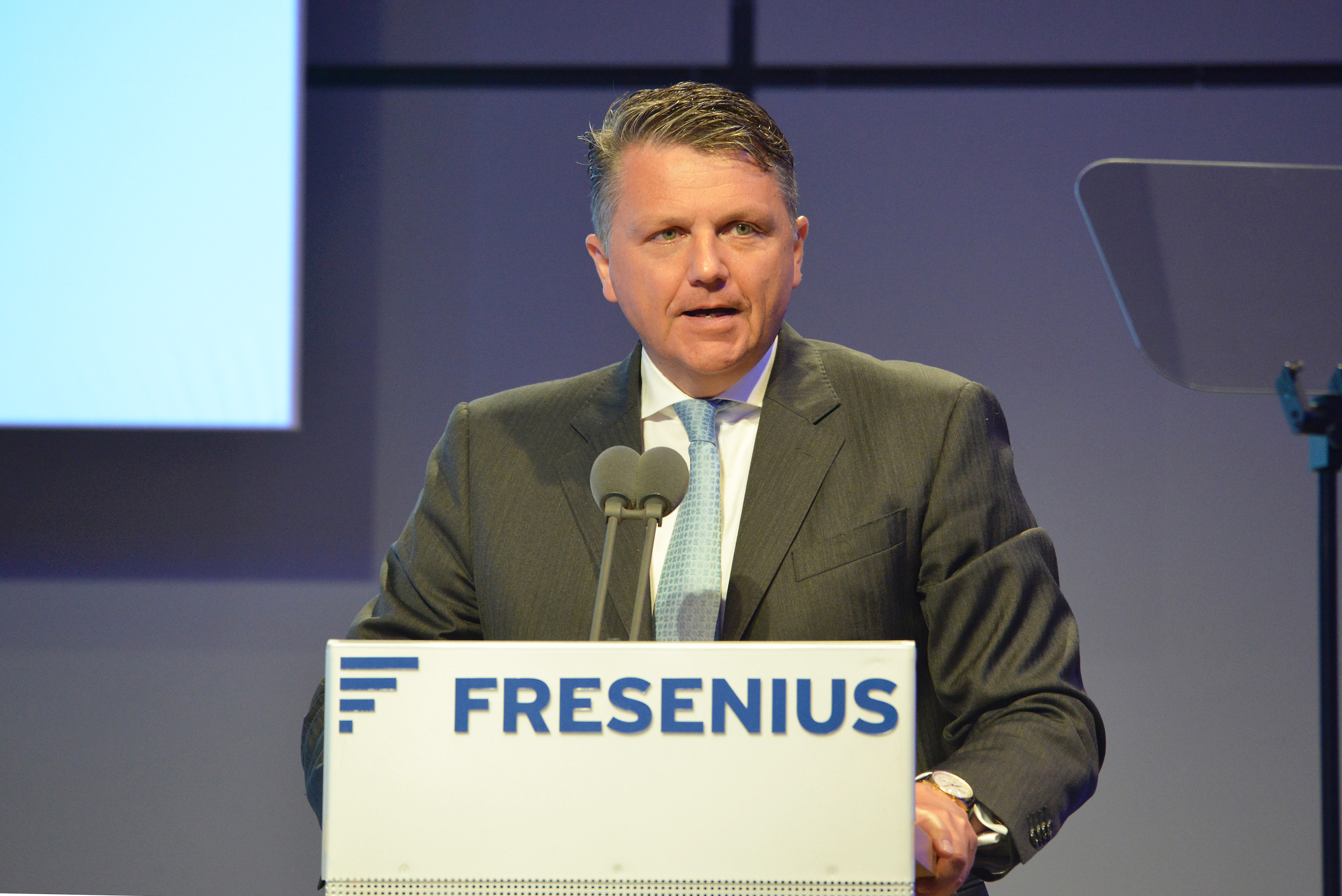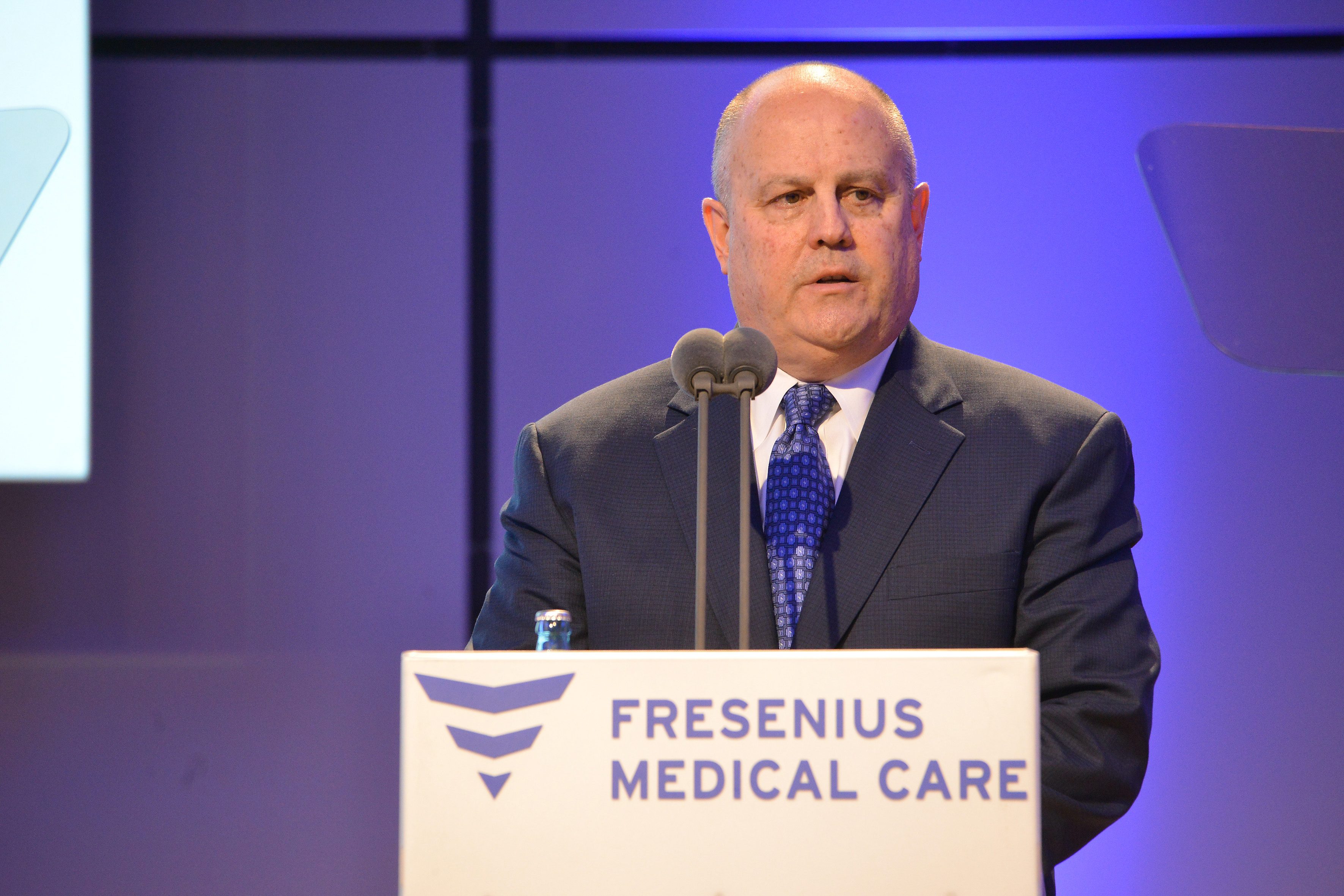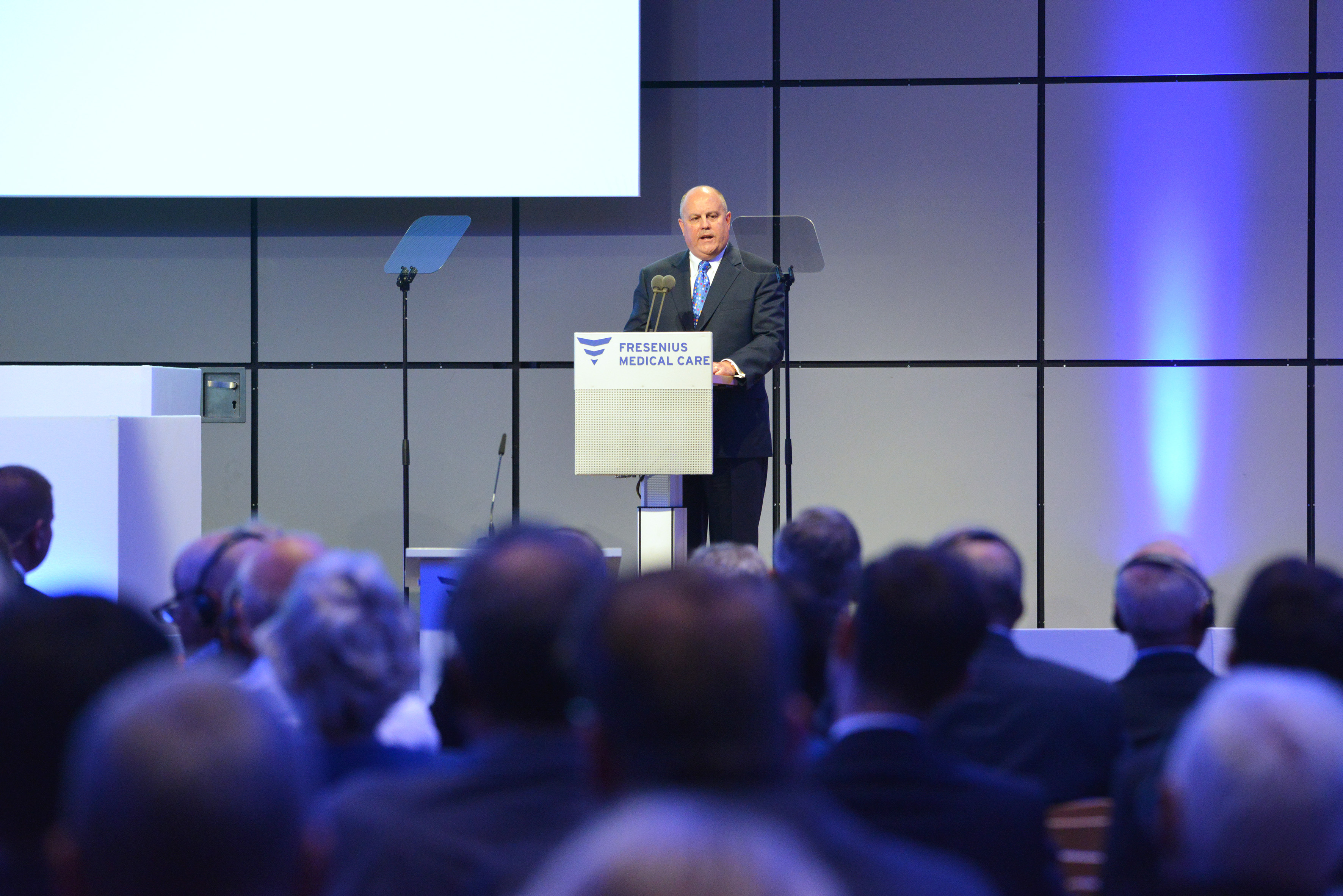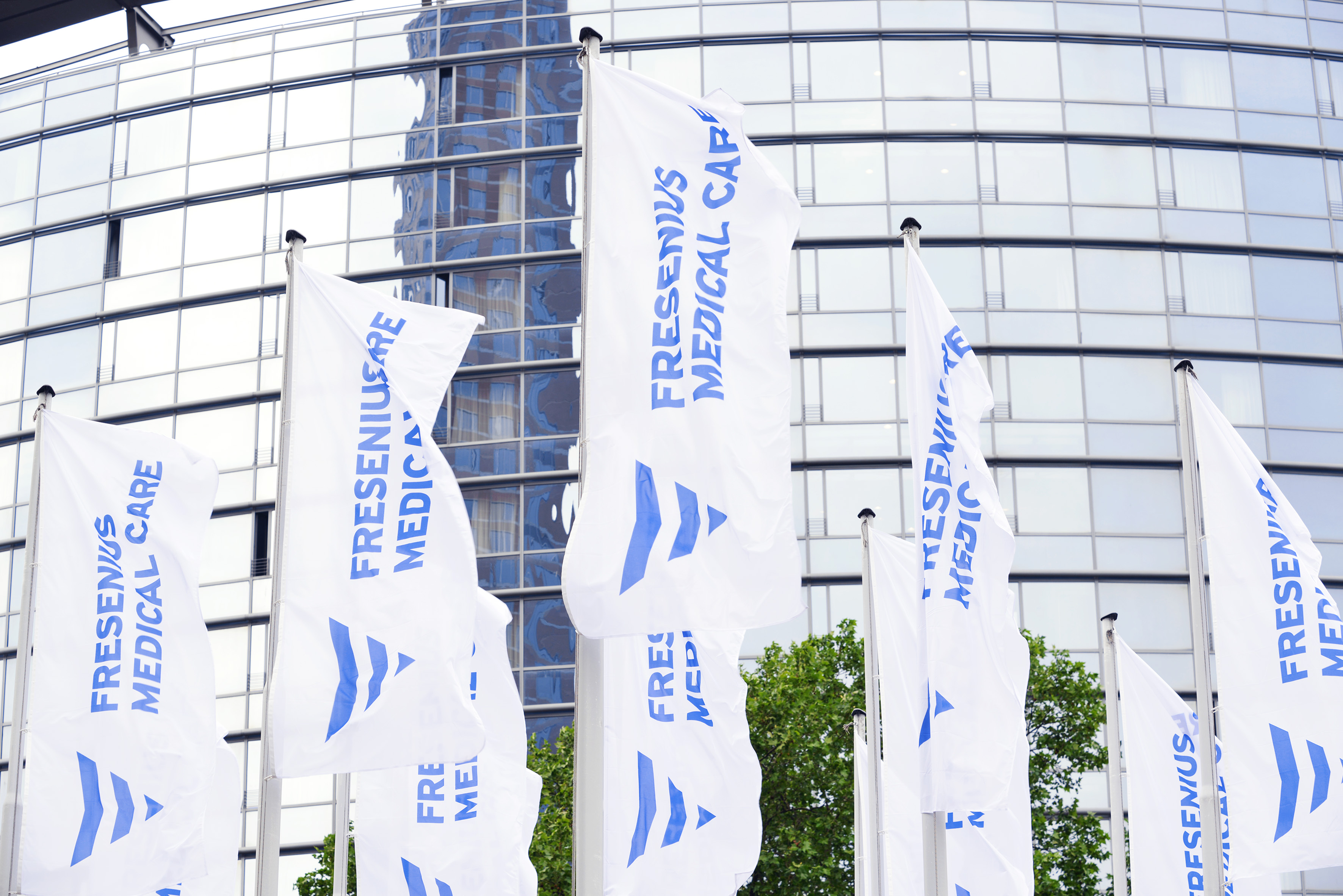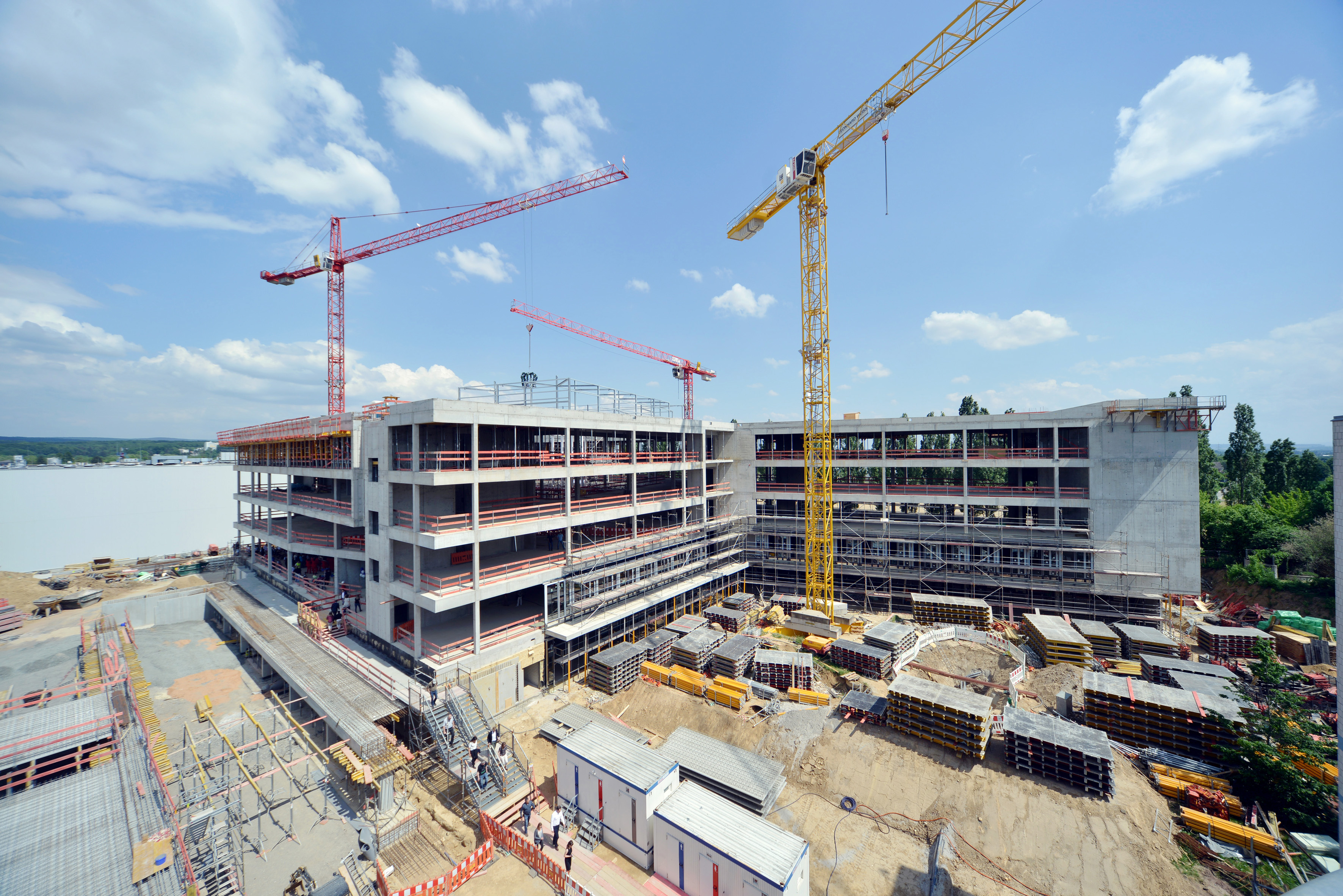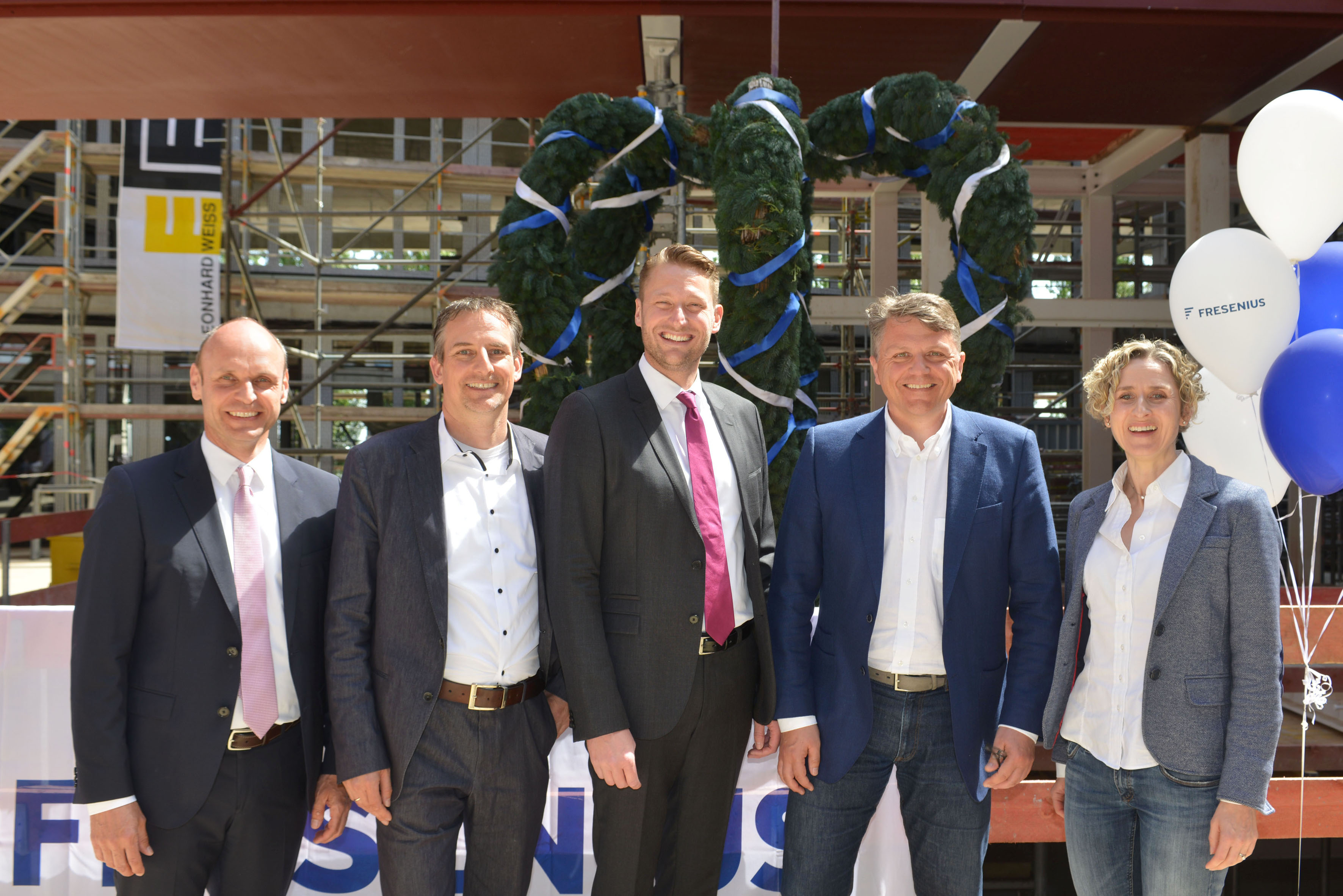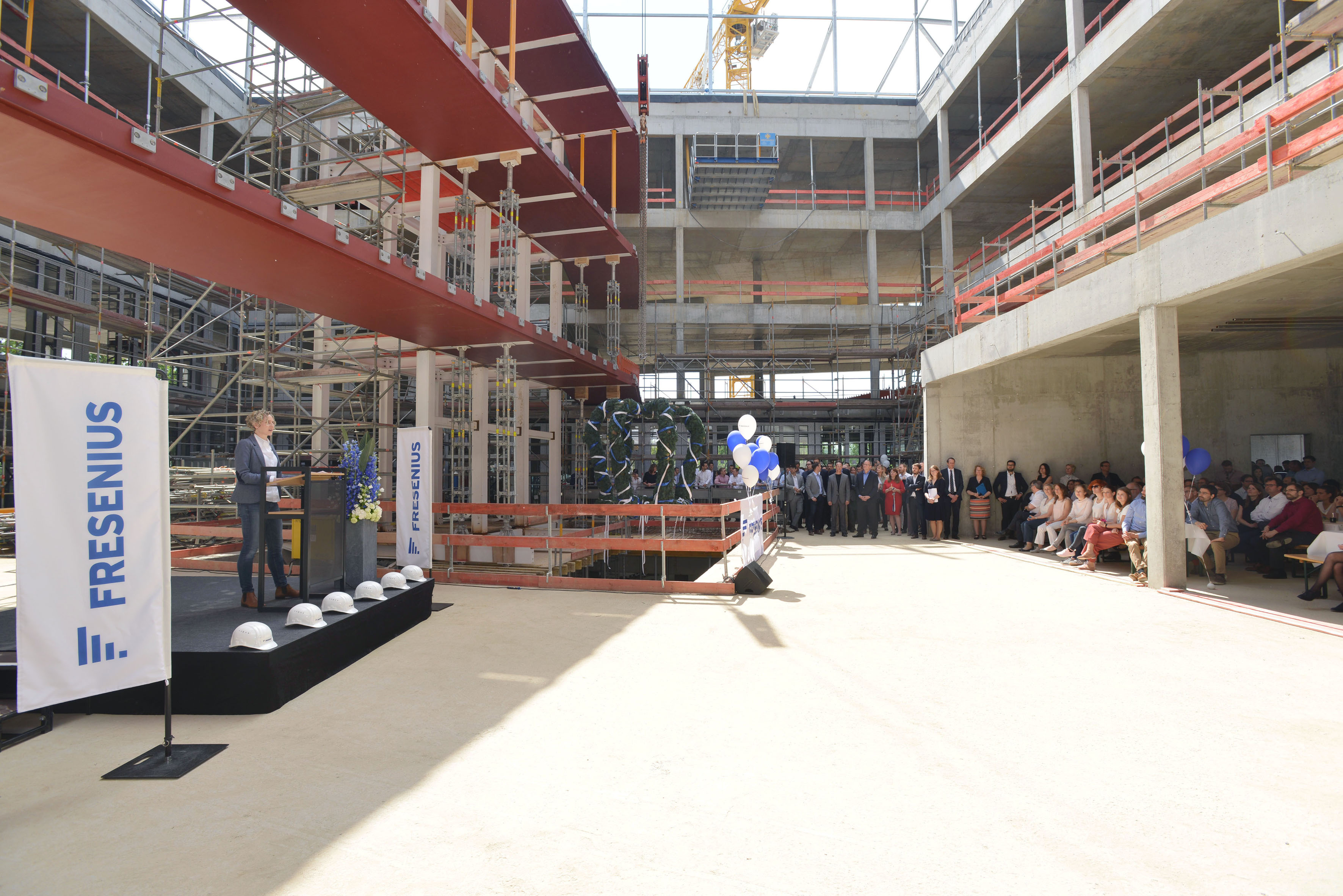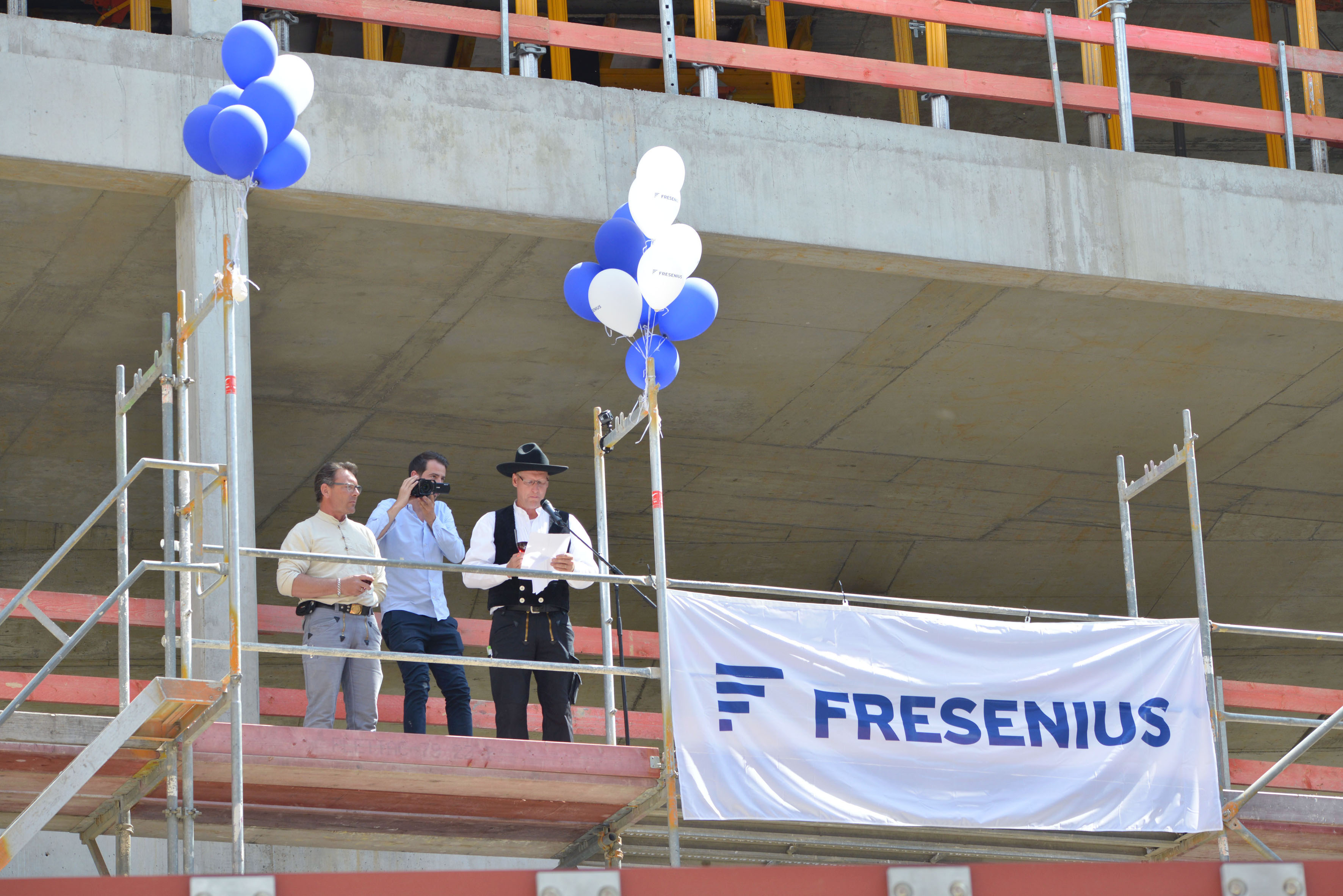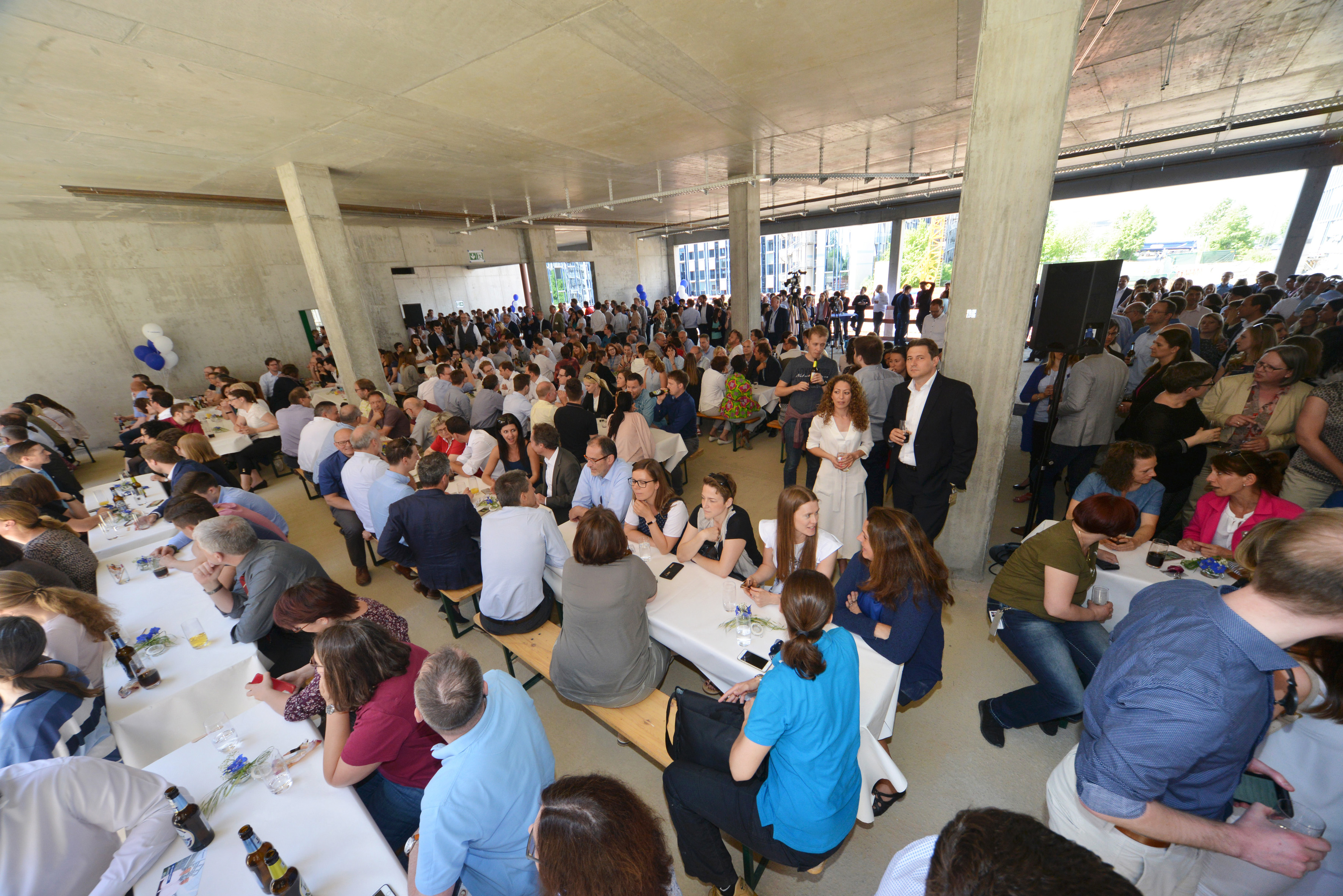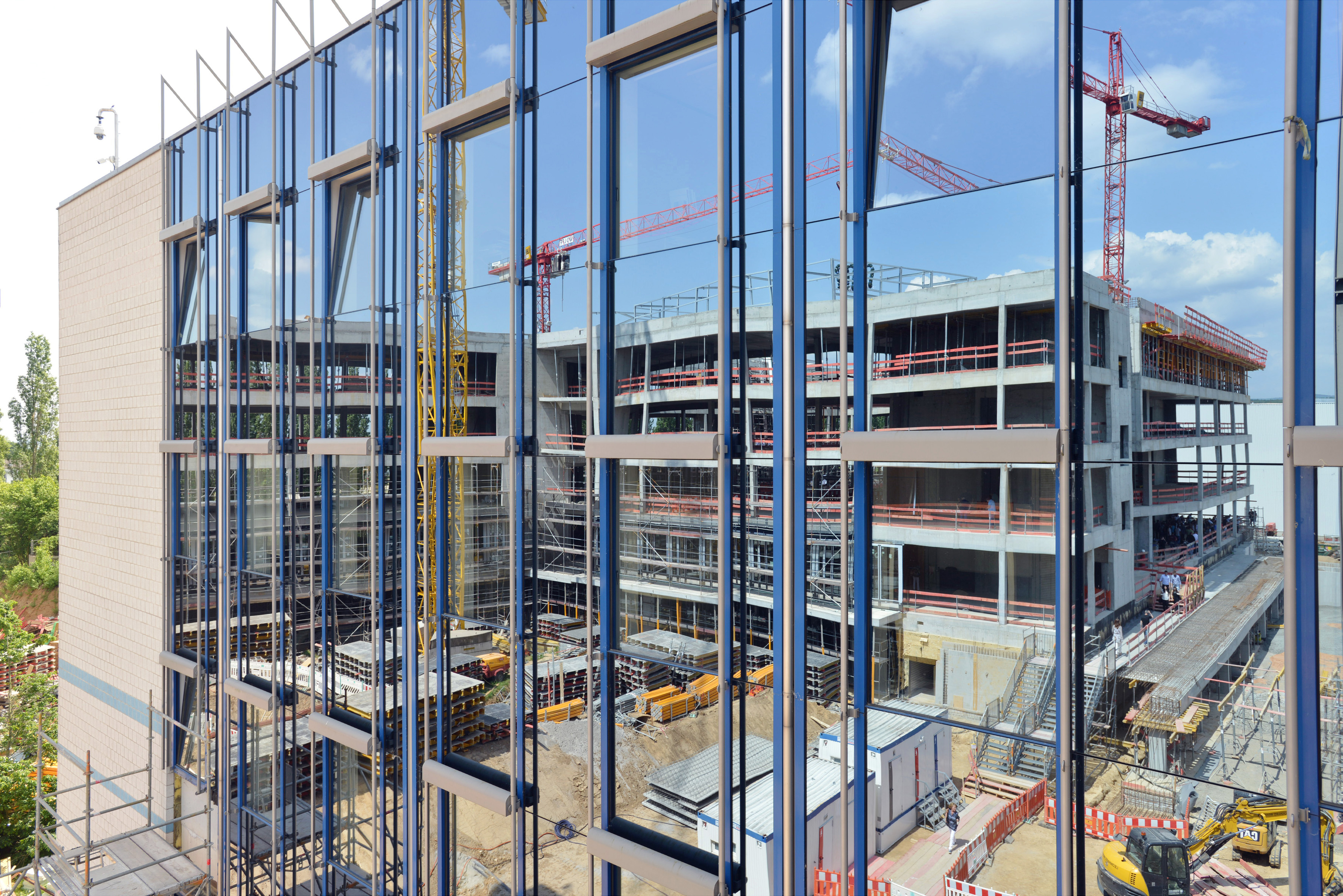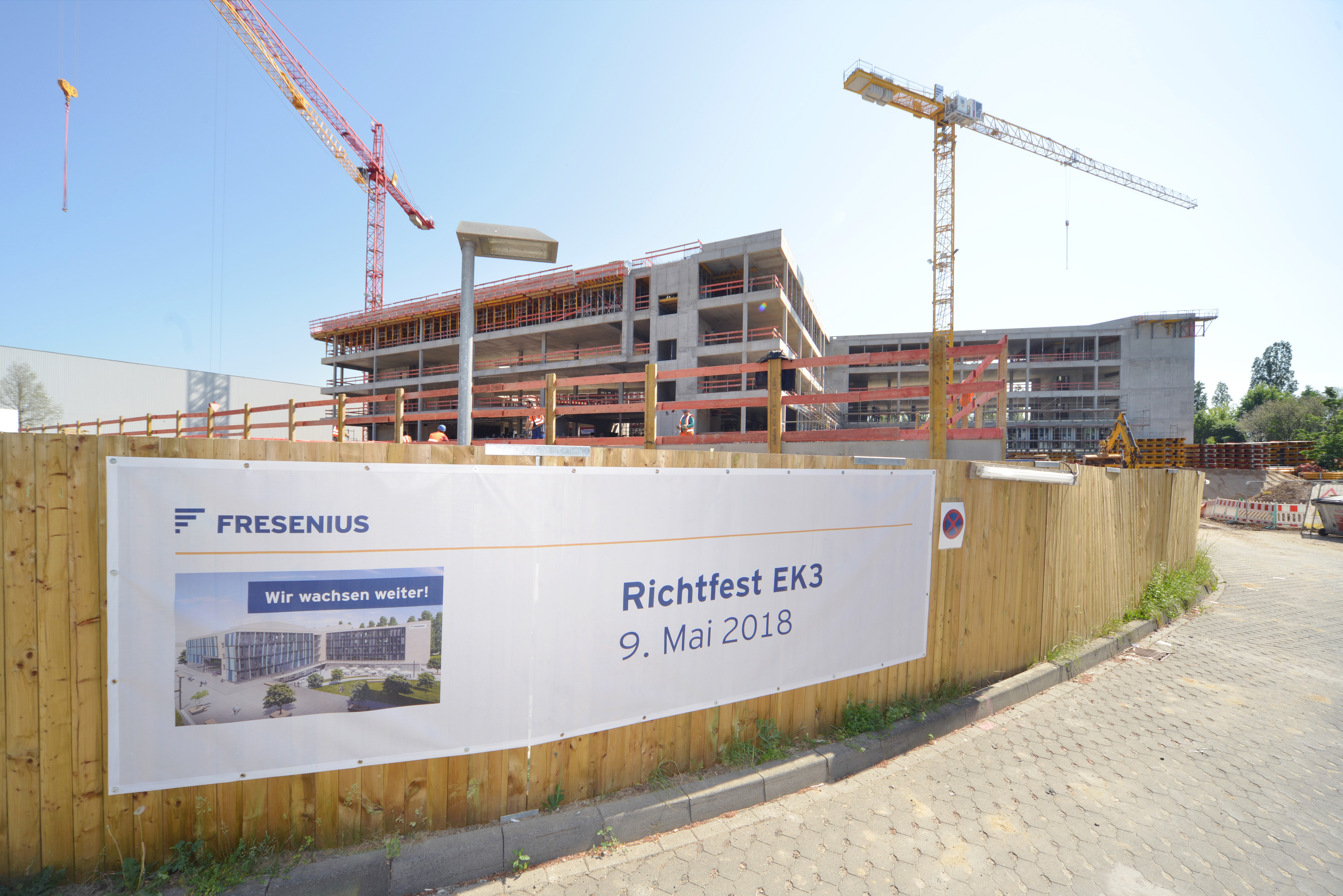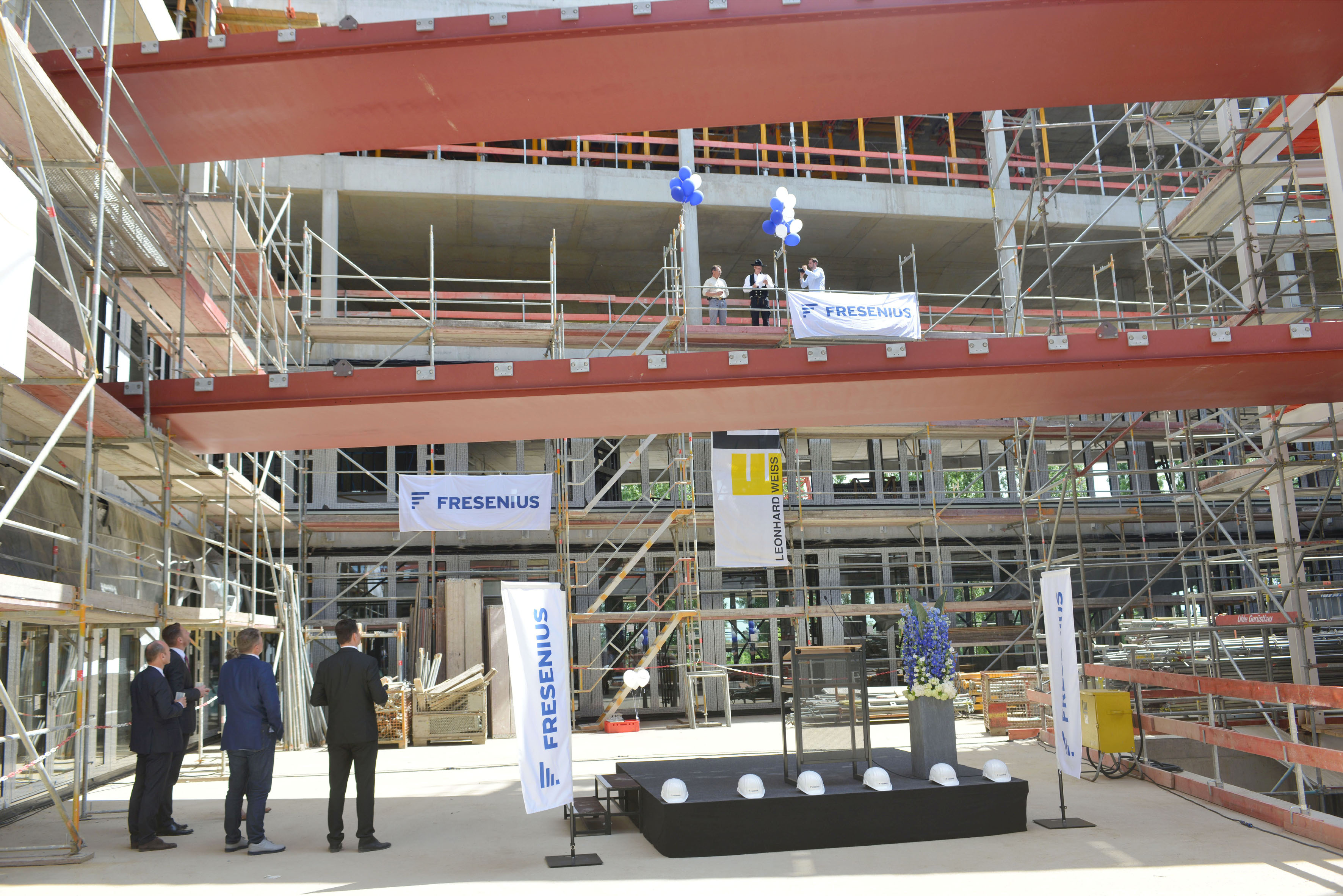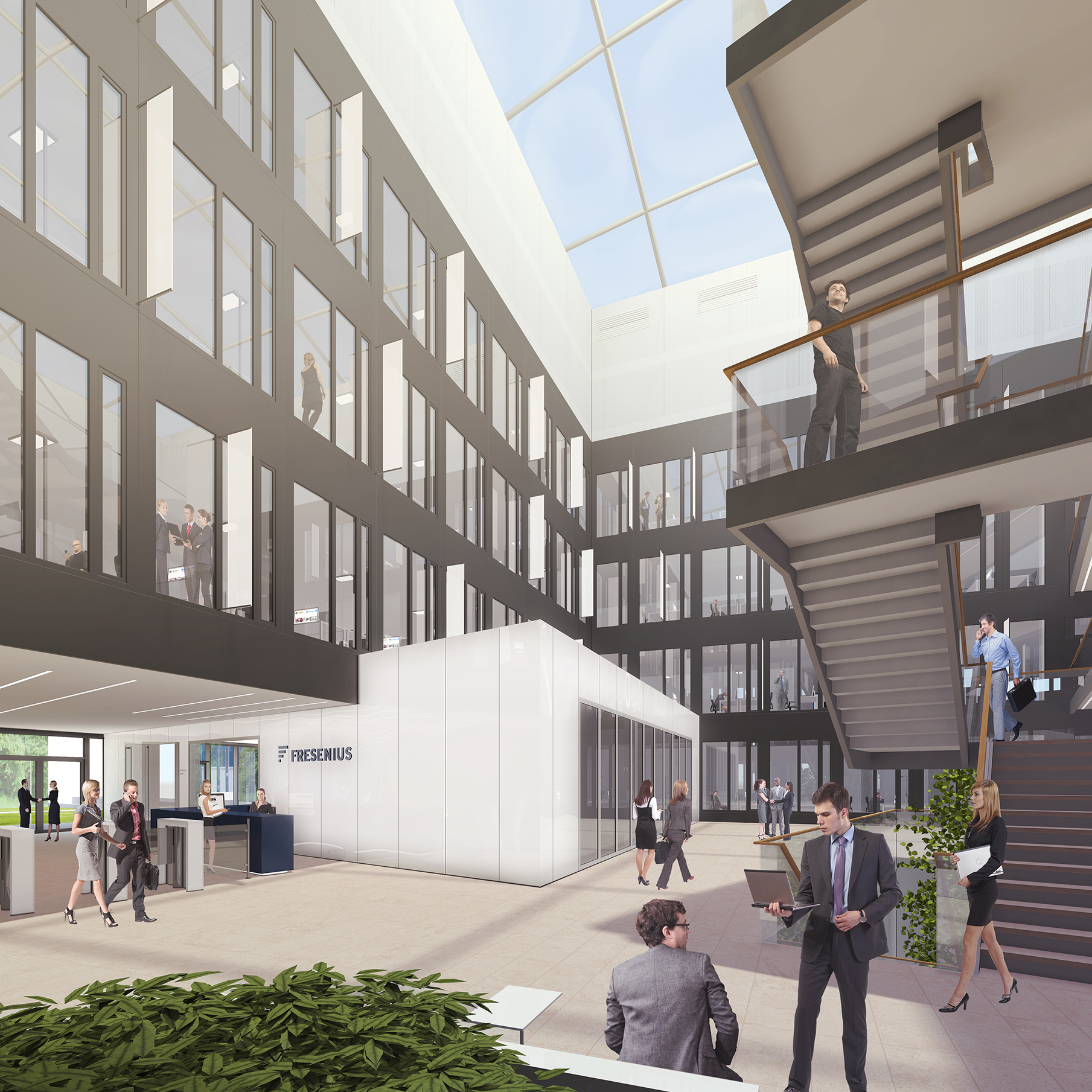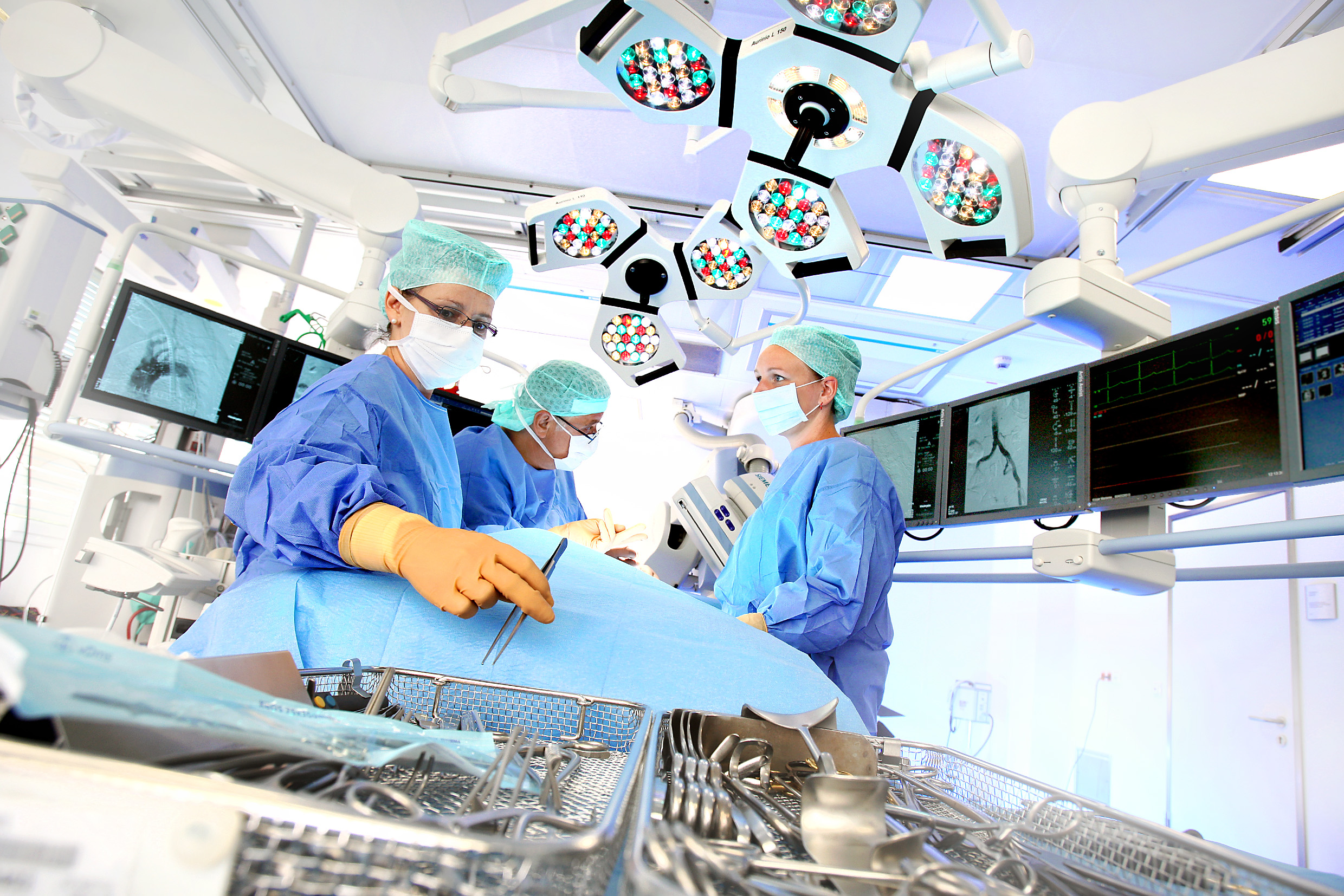
More than a year after closing its acquisition of the Spanish hospital operator Quirónsalud, Fresenius Helios foresees strong prospects for further international growth. At a Capital Markets Day in Berlin today, Fresenius provided investors and analysts with an overview of the progress made in the cooperation between Helios Germany and Quirónsalud, which is opening up new growth opportunities in many areas.
Fresenius Helios confirmed the medium-term target for synergies of €50 million annually. Cooperating in laboratory services and joint purchasing has already achieved cost savings in the current business year that should increase to €30 million per year in the medium term. Annual sales synergies of about €20 million are expected from knowledge transfers in medicine, new models for patient care, and digitalization, among other measures.
Quirónsalud has already begun to implement the system developed by Helios Germany for measuring and assessing data on medical quality. To increase transparency and spur individual hospitals to compete on quality, Helios Germany publishes treatment data on the most important and common medical indications for each hospital in direct comparison with national averages compiled by Germany’s Federal Statistical Office. Quirónsalud has already adapted most of these quality indicators. It has also launched peer reviews, collegial exchanges in which the responsible physicians from the individual hospitals advise and consult with each other on questions concerning treatment quality. These exchanges have already led to significant quality improvements at Helios Germany.
The knowledge transfer also extends to digitalization: Quirónsalud’s advanced know-how in patient-oriented uses includes the development of apps, while Helios Germany is particularly strong in IT processes.
Stephan Sturm, CEO of Fresenius, said: “Helios Germany and Quirónsalud are bundling their respective strengths across national borders, exchanging experience and knowledge. This benefits our patients, in Spain as well as in Germany. And it is creating, step by step, the economic prerequisites for the further internationalization of our hospital business. The driving force behind our business success is, and will remain, our clear focus on the well-being of patients. So wherever and whenever we can do more for our patients through closer cooperation between our business segments, we will seize that opportunity.”
Fresenius Helios will also profit from combining the experience gained from the very different health care systems of Spain and Germany. The Spanish system, for its part, allows a great deal of flexibility in care provision models. In Madrid, for example, Quirónsalud has been given responsibility for providing health care to publicly funded patients in designated parts of the city in return for a set reimbursement rate. For patients, however, treatment quality remains the decisive criterion, and assigned patients are still free to choose another hospital. If they do, the cost must be assumed by the hospital that was originally assigned to their care. This increased competition stimulates continuous improvement in areas that are of crucial importance to patients – such as medical quality, service and shorter waiting times. All of these are core competencies of Quirónsalud.
Another area where Fresenius Helios can now draw on its experience from two different health care systems is in classifications of inpatient and outpatient care. The two are strictly separated in Germany, but less so in Spain: Many treatments and after-care procedures that Germans undergo as inpatients are provided to their Spanish counterparts on an outpatient basis – often resulting in significantly shorter hospital stays.
Dr. Francesco de Meo, who is responsible for Fresenius Helios on the Fresenius Management Board, said: “Helios Germany and Quirónsalud are leaders in their home markets, each of which has different reimbursement and care models and health insurance systems. In response, each company has developed its own strengths, which excellently complement each other and can be used to their mutual advantage. We expect this will contribute to higher medical quality and more efficiency, and bring us closer to patients. Thus, together we are building a common base of knowledge and experience that will help us to enter new markets.”
Cooperation with Fresenius Vamed is also being intensified – for example, in procurement, where Fresenius Helios and Fresenius Vamed are now jointly purchasing certain products. In addition, Fresenius Vamed has started providing Quirónsalud hospitals in Spain with technical services and medical technology, as it was already doing for Helios Germany. In Germany, meanwhile, Fresenius Helios and Fresenius Vamed will combine their know-how in hospital construction in order to bundle their competencies in construction and project management.
Earlier this week, the two companies agreed that Fresenius Helios’ inpatient rehabilitation business in Germany will be transferred to Fresenius Vamed on July 1, 2018. This will put Fresenius Helios on a stronger growth footing, with an even clearer focus on the acute-care hospital business and its further internationalization.
Webcast of the event:
Fresenius Helios Capital Markets Day will be available as a webcast on the Internet under: www.fresenius.com/investors-new-developments
This release contains forward-looking statements that are subject to various risks and uncertainties. Future results could differ materially from those described in these forward-looking statements due to certain factors, e.g. changes in business, economic and competitive conditions, regulatory reforms, results of clinical trials, foreign exchange rate fluctuations, uncertainties in litigation or investigative proceedings, and the availability of financing. Fresenius does not undertake any responsibility to update the forward-looking statements in this release.
Fresenius is reorganizing the Group’s inpatient rehabilitation business, to create the conditions for the continued growth of Fresenius Helios and Fresenius Vamed. On July 1, 2018, 38 health care facilities and 13 service companies in Germany specializing in inpatient post-acute and nursing care, which are now operated by Fresenius Helios, will be transferred to Fresenius Vamed. This will strengthen Fresenius Vamed’s position as a leading provider of post-acute care in Europe. Fresenius Helios, meanwhile, will focus even more strongly on the acute care hospital business and its continued internationalization.
The transaction has a total volume of €485 million, including assumed net debt of €15 million. It will be financed Group-internally. This year, the inpatient post-acute care business that is being transferred is expected to generate about €460 million in sales and an EBIT of around €37 million.
As part of the transfer, Fresenius Vamed is taking on all of the approximately 7,700 employees of the post-acute care business.
With regard to the respective core competencies of Fresenius Vamed and Fresenius Helios, the two Fresenius business segments will further intensify their cooperation, which has already proven successful in Germany and Spain.
Stephan Sturm, CEO of Fresenius, said: “For Fresenius, post-acute care is and will remain an important component of the treatment we provide to our patients. And now by bundling our great expertise in this area within Fresenius Vamed, we are building a platform for further international growth. We are also putting Fresenius Helios’ on a stronger growth footing, with an even clearer focus on acute care. In addition, we are facilitating even more intensive cooperation between these two business segments, for the benefit of our patients.”
Fresenius Vamed is already a leading post-acute care provider in Austria, Switzerland and the Czech Republic, and entered the British market last year. After the transaction, Fresenius Vamed will have a total of 63 inpatient health care facilities in five European countries.
Even after the transfer of its inpatient post-acute care business to Fresenius Vamed, Fresenius Helios will remain Europe’s largest private hospital operator, with 137 hospitals and about 100,000 employees in Germany and Spain. The strategic focus of Fresenius Helios will remain its acute care hospitals, as well as the outpatient acute care - including preventative medicine - and outpatient post-acute care.
As a consequence of the transfer, Fresenius is adjusting the 2018 outlook for Fresenius Helios and Fresenius Vamed. Fresenius Helios now expects EBIT growth of 5% to 8% (7% to 10% previously). Its organic sales growth outlook of 3% to 6% remains unchanged. Fresenius Vamed is now expecting EBIT growth of 32% to 37%1 (5% to 10% previously). Fresenius Vamed’s organic sales growth forecast remains unchanged at 5% to 10%.
The transaction will not significantly affect the 2018 business results of the Fresenius Group, which accordingly confirms its guidance2 for the current business year. Group sales are expected to increase by 5% to 8%3 in constant currency. Net income4,5 is expected to grow by 6% to 9% in constant currency. Excluding expenditures for the further development of the biosimilars business, net income4,6 is expected to grow by ~10% to 13% in constant currency.
1 Expected EBIT of the inpatient post-acute care business in H2/2018: ~€20 million 2 Excluding effects of the Akorn, NxStage and Sound Physicians transactions 3 2017 base adjusted for IFRS 15 adoption (deduction of €486 million at Fresenius Medical Care) 4 Net income attributable to shareholders of Fresenius SE & Co. KGaA 5 2017 base: €1,816 million; 2018 before special items (i.e., transaction-related effects); including expenditures for further development of biosimilars business (€43 million after tax in FY/17 and ~€120 million after tax in FY/18) 6 2017 base: €1,859 million; 2018 before special items (i.e., transaction-related effects)
This release contains forward-looking statements that are subject to various risks and uncertainties. Future results could differ materially from those described in these forward-looking statements due to certain factors, e.g. changes in business, economic and competitive conditions, regulatory reforms, results of clinical trials, foreign exchange rate fluctuations, uncertainties in litigation or investigative proceedings, and the availability of financing. Fresenius does not undertake any responsibility to update the forward-looking statements in this release.

Fresenius is reorganizing the Group’s inpatient rehabilitation business, to create the conditions for the continued growth of Fresenius Helios and Fresenius Vamed. On July 1, 2018, 38 health care facilities and 13 service companies in Germany specializing in inpatient post-acute and nursing care, which are now operated by Fresenius Helios, will be transferred to Fresenius Vamed. This will strengthen Fresenius Vamed’s position as a leading provider of post-acute care in Europe. Fresenius Helios, meanwhile, will focus even more strongly on the acute care hospital business and its continued internationalization.
The transaction has a total volume of €485 million, including assumed net debt of €15 million. It will be financed Group-internally. This year, the inpatient post-acute care business that is being transferred is expected to generate about €460 million in sales and an EBIT of around €37 million.
As part of the transfer, Fresenius Vamed is taking on all of the approximately 7,700 employees of the post-acute care business.
With regard to the respective core competencies of Fresenius Vamed and Fresenius Helios, the two Fresenius business segments will further intensify their cooperation, which has already proven successful in Germany and Spain.
Stephan Sturm, CEO of Fresenius, said: “For Fresenius, post-acute care is and will remain an important component of the treatment we provide to our patients. And now by bundling our great expertise in this area within Fresenius Vamed, we are building a platform for further international growth. We are also putting Fresenius Helios’ on a stronger growth footing, with an even clearer focus on acute care. In addition, we are facilitating even more intensive cooperation between these two business segments, for the benefit of our patients.”
Fresenius Vamed is already a leading post-acute care provider in Austria, Switzerland and the Czech Republic, and entered the British market last year. After the transaction, Fresenius Vamed will have a total of 63 inpatient health care facilities in five European countries.
Even after the transfer of its inpatient post-acute care business to Fresenius Vamed, Fresenius Helios will remain Europe’s largest private hospital operator, with 137 hospitals and about 100,000 employees in Germany and Spain. The strategic focus of Fresenius Helios will remain its acute care hospitals, as well as the outpatient acute care - including preventative medicine - and outpatient post-acute care.
As a consequence of the transfer, Fresenius is adjusting the 2018 outlook for Fresenius Helios and Fresenius Vamed. Fresenius Helios now expects EBIT growth of 5% to 8% (7% to 10% previously). Its organic sales growth outlook of 3% to 6% remains unchanged. Fresenius Vamed is now expecting EBIT growth of 32% to 37%1 (5% to 10% previously). Fresenius Vamed’s organic sales growth forecast remains unchanged at 5% to 10%.
The transaction will not significantly affect the 2018 business results of the Fresenius Group, which accordingly confirms its guidance2 for the current business year. Group sales are expected to increase by 5% to 8%3 in constant currency. Net income4,5 is expected to grow by 6% to 9% in constant currency. Excluding expenditures for the further development of the biosimilars business, net income4,6 is expected to grow by ~10% to 13% in constant currency.
1 Expected EBIT of the inpatient post-acute care business in H2/2018: ~€20 million
2 Excluding effects of the Akorn, NxStage and Sound Physicians transactions
3 2017 base adjusted for IFRS 15 adoption (deduction of €486 million at Fresenius Medical Care)
4 Net income attributable to shareholders of Fresenius SE & Co. KGaA
5 2017 base: €1,816 million; 2018 before special items (i.e., transaction-related effects); including expenditures for further development of biosimilars business (€43 million after tax in FY/17 and ~€120 million after tax in FY/18)
6 2017 base: €1,859 million; 2018 before special items (i.e., transaction-related effects)
This release contains forward-looking statements that are subject to various risks and uncertainties. Future results could differ materially from those described in these forward-looking statements due to certain factors, e.g. changes in business, economic and competitive conditions, regulatory reforms, results of clinical trials, foreign exchange rate fluctuations, uncertainties in litigation or investigative proceedings, and the availability of financing. Fresenius does not undertake any responsibility to update the forward-looking statements in this release.
Fresenius remains on track to continue strong growth. At the Annual General meeting in Frankfurt today, Stephan Sturm, CEO of Fresenius, confirmed the global health care group’s 2018 targets, which foresee increases of 5 to 8 percent in sales and 6 to 9 percent in net income1,2, both in constant currency. Excluding the investments for the development of the biosimilars business, net income1 is expected to increase by about 10 to 13 percent in constant currency.
“Fresenius has been highly successful over many years. And Fresenius will continue to be highly successful in the coming years,” Sturm said in his speech to shareholders. “Our entry into biosimilars. The expansion of our home dialysis activities. The internationalization of Fresenius Helios. And our huge investments to secure even more quality and efficiency in our production. These are all examples of how we are shaping our business, today, to stay successful in the future. The dynamic growth of Fresenius continues.”
Shareholders approved with a majority of 89.2 percent the proposal of the General Partner and the Supervisory Board to increase the dividend for the 25th consecutive time. It was raised by 21 percent, to €0.75 per share.
With a majority of 94.3 percent, the shareholders approved a new Authorized Capital I in the amount of €125 million. New authorizations to issue convertible bonds, to repurchase own shares, and to use equity derivatives for repurchasing own shares were also approved. In addition, the shareholders approved the revised compensation system for the members of the Management Board of the General Partner.
Shareholder majorities of 97.5 percent and 89.0 percent, respectively, approved the actions of the Management and Supervisory Boards in 2017.
At the Annual General Meeting, 73 percent of the subscribed capital was represented.
1 Net income attributable to shareholders of Fresenius SE & Co. KGaA; 2017 base: €1,859 million; 2018 before special items (i.e., transaction-related effects)
2 including expenditures for further development of biosimilars business (€43 million after tax in FY/17 and ~€120 million after tax in FY/18)
This release contains forward-looking statements that are subject to various risks and uncertainties. Future results could differ materially from those described in these forward-looking statements due to certain factors, e.g. changes in business, economic and competitive conditions, regulatory reforms, results of clinical trials, foreign exchange rate fluctuations, uncertainties in litigation or investigative proceedings, and the availability of financing. Fresenius does not undertake any responsibility to update the forward-looking statements in this release.
Fresenius Medical Care, the world’s largest provider of dialysis products and services, expects continued strong growth. At the Annual General Meeting in Frankfurt today, CEO Rice Powell explained the company's growth strategy for the coming years: “We will continue to expand our business with services and products for dialysis, and will continue to grow,” Powell said in his speech to the shareholders. “The basis for this is our international network of dialysis centers, our comprehensive knowledge in dialysis, and focusing our Care Coordination portfolio. We are well positioned to respond to the current and future changes in health care systems: In fact, we can actively shape these systems! This helps our patients, because we can provide them with comprehensive care. And in turn, helping our patients is the key to our business success.”
A large shareholder majority of 88.27 percent approved a 10 percent increase in the dividend, from €0.96 to €1.06, the company’s 21st consecutive dividend increase. Shareholder majorities of 99.23 and 95.46 percent, respectively, approved the actions of the Management and Supervisory Boards in 2017.
At the Annual General Meeting, 80.46 percent of the subscribed capital was represented.
Dr. Gerd Krick, Chairman of the Supervisory Board of Fresenius Medical Care AG & Co. KGaA, announced that he will resign from the Supervisory Board, effective at the meeting’s end. He will maintain his position on the Supervisory Board of the General Partner, Fresenius Medical Care Management AG.
Dr. Krick had been Chief Executive Officer of Fresenius Medical Care from 1996, when the company was founded, to 1998, laying the foundation for its global success. In 1998, he resigned from his CEO position and became Chairman of the Supervisory Board of Fresenius Medical Care. The Supervisory Board and Management Board thank Dr. Krick for his tremendous efforts to date and many years of service to the benefit of the company.
The Supervisory Board has appointed Dr. Dieter Schenk, Vice Chairman of the Supervisory Board of Fresenius Medical Care AG & Co. KGaA, as the new Chairman. A new member of the Supervisory Board will be appointed in due course and proposed for election at the next Annual General Meeting, which is expected to take place on May 16, 2019.
Disclaimer
This release contains forward-looking statements that are subject to various risks and uncertainties. Actual results could differ materially from those described in these forward-looking statements due to certain factors, including changes in business, economic and competitive conditions, regulatory reforms, foreign exchange rate fluctuations, uncertainties in litigation or investigative proceedings, and the availability of financing. These and other risks and uncertainties are detailed in Fresenius Medical Care AG & Co. KGaA's reports filed with the U.S. Securities and Exchange Commission. Fresenius Medical Care AG & Co. KGaA does not undertake any responsibility to update the forward-looking statements in this release.
Fresenius held the topping-out ceremony today for a new office building, part of the global healthcare group’s headquarters expansion in Bad Homburg. Local officials and business representatives joined a large number of employees for the festivities.
When the building opens next year it will offer modern workplaces for about 600 members of the company’s steadily growing workforce, as well as conference rooms, an additional staff canteen and a parking garage. Known internally as “EK3” because it will be the third Fresenius headquarters building on Else-Kröner Strasse, the five-story, “L”-formed structure will have a total volume of more than 100,000 cubic meters (over 3.5 million cubic feet) – the equivalent of about 175 single-family homes. About 11,000 cubic meters of earth were moved to make way for the building, with some 2,000 truckloads of cement and 2,000 tons of steel being used in its now-completed structural shell.
Addressing the topping-out ceremony, Rachel Empey, the Chief Financial Officer of Fresenius, stressed the importance of layout and design in facilitating cooperation between colleagues inside a building. “I hope that we’ll all use this space here in EK3 to work well together, and to cooperate even more effectively in the future,” Empey said. “It’s important that we are closely interconnected throughout the Fresenius Group. Fresenius possesses an incredible amount of knowledge and know-how: We have to share it, and make it transparent inside the Group, in order to continue growing as we are now. And then we will be able to dedicate a few more buildings here in Bad Homburg.”
Mayor Alexander Hetjes of Bad Homburg said: “We congratulate Fresenius on the very rapid and smooth construction. The residents of Bad Homburg have been following the headquarters expansion with great interest. Fresenius is a major employer, a leader in its sector, and a company that organizes and stages many activities to promote good health among the people in our city. We wish the company and everyone involved every success for the rest of the construction.”
Fresenius is investing a total of about €70 million in its headquarters expansion. The company currently employs about 3,600 people in Bad Homburg, and an additional 300 in the neighboring town of Oberursel.
Q1/2018:
- Sales: €8.1 billion (-1%, +7% in constant currency1)
- EBIT2: €1,054 million (-13%, -5% in constant currency)
- EBIT2: €1,089 million (-10%, -2% in constant currency) (excluding biosimilars business)
- Net income2,3: €450 million (-2%, +7% in constant currency)
- Net income2,3: €476 million (+4%, +12% in constant currency) (excluding biosimilars business)
1 Growth rates adjusted for IFRS 15 adoption (Q1/17 base: €8,223 million)2 Before special items (i.e., expenses related to (i) the Akorn transaction, and (ii) the re-valuation of Sound Physicians’ share-based payment program caused by its announced divestiture)3 Net income attributable to shareholders of Fresenius SE & Co. KGaAFor a detailed overview of special items please see the reconciliation table on page 16 of the PDF.
Stephan Sturm, CEO of Fresenius, said: “We have started into the year with great momentum. All four Fresenius business segments and all regions showed healthy organic growth in the first quarter. Once again, Fresenius Kabi stood out with a strong development across all regions and product areas. From this position of strength, we are well on track to reach our ambitious 2018 growth targets and achieve yet another record year.”
Fresenius terminates merger agreement with Akorn
Fresenius decided on April 22, 2018, to terminate the company’s merger agreement with Akorn, due to Akorn’s failure to fulfill several closing conditions. Fresenius’ decision is based on, among other factors, material breaches of FDA (Food and Drug Administration) data integrity requirements relating to Akorn’s operations found during Fresenius’ independent investigation. Fresenius had offered to delay its decision in order to allow Akorn additional opportunity to complete its own investigation and present any information it wished Fresenius to consider, but Akorn declined that offer.
Akorn disagrees with Fresenius’ position and has filed a corresponding complaint. Fresenius in turn has filed a counterclaim on April 30, 2018.
Stephan Sturm, CEO of Fresenius, said: “We will continue to pursue the strategic goal of expanding our portfolio of injectable generic drugs in North America. This strategy has been, and remains, valid. And given the continuing strong development of Fresenius Kabi in North America, we are in an excellent position to achieve it.”
Group guidance1 for 2018 confirmed
Fresenius confirms its guidance for 2018. Group sales are expected to increase by 5% to 8%2 in constant currency. Net income3,4 is expected to grow by 6% to 9% in constant currency. Excluding expenditures for the further development of the biosimilars business, net income3,5 is expected to grow by ~10% to 13% in constant currency.
Fresenius expects to further reduce its net debt/EBITDA6 ratio by year-end 2018.
7% sales growth in constant currency7
Group sales decreased by 1%7 (increased by 7%7 in constant currency) to €8,121 million (Q1/2017: €8,362 million). Organic sales growth was 4%. Acquisitions/divestitures contributed net 3% to growth. Sales growth was impacted by the anticipated decline in the pharmacy business within Care Coordination at Fresenius Medical Care North America. Also at Fresenius Medical Care, the prior-year quarter saw the compensation for treatments of U.S. war veterans in previous years ("VA agreement"), contributing €100 million as a one-time effect. Negative currency translation effects (8%) were mainly driven by the devaluation of the U.S. dollar and the Chinese yuan against the euro.
1 Excluding effects of the Akorn, NxStage and Sound Physicians transactions2 2017 base adjusted for IFRS 15 adoption (deduction of €486 million at Fresenius Medical Care)3 Net income attributable to shareholders of Fresenius SE & Co. KGaA4 2017 base: €1,816 million; 2018 before special items (i.e., transaction-related effects); including expenditures for further development of biosimilars business (€43 million after tax in FY/17 and ~€120 million after tax in FY/18)5 2017 base: €1,859 million; 2018 before special items (i.e., transaction-related effects)6 Calculated at expected annual average exchange rates, for both net debt and EBITDA; excluding effects of the Akorn, NxStage and Sound Physicians transactions; excluding further potential acquisitions; at current IFRS rules7 Growth rates adjusted for IFRS 15 adoption (Q1/17 base: €8,223 million)
Group sales by region:


7% net income1,2 growth in constant currency
Group EBITDA2 decreased by 10% (-2% in constant currency) to €1,403 million (Q1/2017: €1,560 million). Group EBIT2 decreased by 13% (-5% in constant currency) to €1,054 million (Q1/2017: €1,216 million). The prior-year quarter was strongly influenced by a positive one-time effect: the VA agreement contributed €99 million, or 10%, to EBIT growth in constant currency in Q1/17. The EBIT margin2 was 13.0% (12.7% before IFRS 15; Q1/2017: 14.5%). Group EBIT2 before expenses for the further development of the biosimilars business decreased by 10% (-2% in constant currency) to €1,089 million. Group EBIT2 before VA agreement and excluding the expenses for the biosimilars business increased by 6% in constant currency.
Group net interest2 was -€146 million (Q1/2017: -€157 million). The decrease is mainly driven by currency effects and positive refinancing activities.
The decrease of the Group tax rate before special items to 21.0% (Q1/2017: 29.1%) was mainly due to the U.S. tax reform and a one-time tax effect at Fresenius Medical Care.
Noncontrolling interest2 was €267 million (Q1/2017: €294 million), of which 95% was attributable to the noncontrolling interest in Fresenius Medical Care.
Group net income1,2 decreased by 2% (increased by 7% in constant currency) to €450 million (Q1/2017: €457 million). Earnings per share1,2 decreased by 2% (increased by 6% in constant currency) to €0.81 (Q1/2017: €0.83).
Group net income1,2 before expenses for the further development of the biosimilars business increased by 4% (12% in constant currency) to €476 million (Q1/2017: €457 million). Earnings per share1,2 before expenses for the further development of the biosimilars business increased by 4% (11% in constant currency) to €0.86 (Q1/2017: €0.83).
Group net income1 after special items decreased by 4% (increased by 4% in constant currency) to €440 million (Q1/2017: €457 million). Earnings per share1 after special items decreased by 5% (increased by 4% in constant currency) to €0.79 (Q1/2017: €0.83).
1 Net income attributable to shareholders of Fresenius SE & Co. KGaA2 Before special itemsFor a detailed overview of special items please see the reconciliation table on page 16 of the PDF.
Continued investment in growth
Spending on property, plant and equipment was €380 million (Q1/2017: €328 million), primarily for the modernization and expansion of dialysis clinics, production facilities as well as hospitals and day clinics. This corresponds to 4.7% of sales.
Total acquisition spending was €192 million (Q1/2017: €6,083 million). The prior-year quarter included the acquisition of Quirónsalud.
Cash flow development
Operating cash flow decreased by 50% to €236 million (Q1/2017: €476 million) with a margin of 2.9% (Q1/2017: 5.7%). The decrease is mainly attributable to prior years’ received payment under the VA agreement of ~€200 million as well as to the seasonality in invoicing at Fresenius Medical Care North America, which is not expected to impact full year 2018 cash flow.
Free cash flow before acquisitions and dividends decreased to -€155 million (Q1/2017: €148 million). Free cash flow after acquisitions and dividends was -€389 million (Q1/2017: -€5,393 million).
Solid balance sheet structure
The Group’s total assets increased by 1% (2% in constant currency) to €53,502 million (Dec. 31, 2017: €53,133 million). Current assets grew by 6% (8% in constant currency) to €13,409 million (Dec. 31, 2017: €12,604 million). Non-current assets decreased by 1% (0% in constant currency) to €40,093 million (Dec. 31, 2017: € 40,529 million).
Total shareholders’ equity increased by 1% (3% in constant currency) to €22,020 million (Dec. 31, 2017: €21,720 million). The equity ratio increased to 41.2% (Dec. 31, 2017: 40.9%).
Group debt increased by 1% (2% in constant currency) to €19,200 million (Dec. 31, 2017: € 19,042 million). Group net debt increased by 2% (3% in constant currency) to € 17,716 million (Dec. 31, 2017: € 17,406 million).
As of March 31, 2018, the net debt/EBITDA ratio was 2.98 , (December 31, 2017: 2.841,2).
1 At LTM average exchange rates for both net debt and EBITDA; pro forma closed acquisitions, excluding Akorn, NxStage and Sound Physicians transactions2 Before special itemsFor a detailed overview of special items please see the reconciliation table on page 16 of the PDF.
Increased number of employees
As of March 31, 2018, the number of employees increased by 1% to 275,674 (Dec. 31, 2017: 273,249).
Business Segments
Fresenius Medical Care
Fresenius Medical Care is the world's largest provider of products and services for individuals with renal diseases. As of March 31, 2018, Fresenius Medical Care was treating 322,253 patients in 3,790 dialysis clinics. Along with its core business, the company provides related medical services in the field of Care Coordination.


- Q1/2018 growth impacted by significant currency headwinds and positive one-time effect in prior years’ quarter
- 2018 outlook of net income growth4,7 of 13 to 15% in constant currency confirmed
- 2018 sales growth8 target adjusted to 5 to 7% at constant currency (previously ~8%), mainly due to recent reduction in dosing of calcimimetic drugs in the U.S.
Reported sales were strongly impacted by headwinds from foreign exchange rates and by the anticipated decline in the pharmacy business within Care Coordination at Fresenius Medical Care North America. Sales decreased by 10%1 (increased by 2%1 in constant currency) to €3,976 million (Q1/2017: €4,548 million). Organic sales growth was 3%. Acquisitions/divestitures and the VA agreement in the prior-year quarter decreased sales by 1%. Currency translation effects reduced sales by 12%. Excluding the VA agreement in the prior-year quarter, sales growth1 was 4% in constant currency.
1 Growth rate adjusted for IFRS 15 adoption (Q1/17 base: €4,409 million)2 Excluding VA agreement: 4%3 Adjusted for re-valuation of Sound Physicians’ share-based payment program and excluding VA agreement: 3%4 Net income attributable to shareholders of Fresenius Medical Care AG & Co. KGaA5 Adjusted for re-valuation of Sound Physicians’ share-based payment program, the effect of the U.S. Tax Reform and excluding VA agreement: 8%6 Consistent with guidance, adjusted for re-valuation of Sound Physicians’ share-based payment program, including the effect of the U.S. Tax Reform and including VA agreement7 2017 base: €1,280 million; 2018 including benefits from U.S. tax reform and adjusted for the Sound valuation impact8 2017 reported sales: €17,784 million, adjusted for IFRS 15 adoption (deduction of €486 million)
Health Care services sales (dialysis services and care coordination) decreased by 12%1 (increased by 1%1 in constant currency) to €3,209 million (Q1/2017: €3,769 million). Health Care product sales decreased by 2% (increased by 6% in constant currency) to €767 million (Q1/2017: €779 million).
In North America, sales decreased by 14%1 (-1%1 in constant currency) to €2,774 million (Q1/2017: €3,375 million). Health Care services sales decreased by 14%1 (-1%1 in constant currency) to €2,590 million (Q1/2017: €3,165 million) mainly due to the prior-year VA agreement (€100 million). Excluding the 2017 effect from the VA Agreement Health Care services sales increased by 2%1 in constant currency. Health Care product sales decreased by 12% (increased by 1% in constant currency) to €184 million (Q1/2017: €210 million).
Sales outside North America increased by 2% (10% in constant currency) to €1,198 million (Q1/2017: €1,169 million). Health Care services sales increased by 2% (12% in constant currency) to €619 million (Q1/2017: €604 million). Health Care product sales increased by 3% (8% in constant currency) to €579 million (Q1/2017: €564 million).
Fresenius Medical Care’s EBIT decreased by 24% (-15% in constant currency) to €497 million (Q1/2017: €651 million). The EBIT margin was 12.5% (Q1/2017: 14.3%). Adjusted for the effect of the implementation of IFRS 15, the re-valuation of Sound Physicians’ share-based payment program in connection with the announced divestiture of Sound Physicians and for the positive effect of the VA Agreement in Q1/2017, EBIT was up by 3% in constant currency and EBIT margin was stable at 12.8%.
Net income2 of Fresenius Medical Care decreased by 10% (0% in constant currency) to €279 million (Q1/2017: €308 million). Consistent with guidance, i.e. adjusted for the re-valuation of Sound Physicians’ share-based payment program, net income growth2 was 5% in constant currency. Adjusted for the re-valuation of Sound Physicians’ share-based payment program and the effect of the U.S. Tax Reform in 2018 and for the positive effect of the VA agreement, net income growth2 was 8% in constant currency.
1 Growth rate adjusted for IFRS 15 adoption (Q1/17: deduction of €139 million)2 Net income attributable to shareholders of Fresenius Medical Care AG & Co. KGaA
Operating cash flow was -€45 million (Q1/2017: €170 million). The cash flow margin was 1.1% (Q1/2017: 3.7%). The decrease is mainly attributable to prior years’ payment under the VA agreement of ~€200 million as well as to the seasonality in invoicing at Fresenius Medical Care North America, which is not expected to impact full year 2018 cash flow.
Mainly driven by the change in dosing of calcimimetic drugs, Fresenius Medical Care expects sales to grow by 5 to 7%1 (previously: ~8%1 ) in constant currency. Fresenius Medical Care expects net income2 growth of 13% to 15%3 in constant currency and excluding special items of 7% to 9%4.
The 2018 targets are based on 2017 figures adjusted for the adoption of IFRS 15 implementation and exclude effects from the planned acquisition of NxStage Medical and the announced divestiture of Sound Physicians.
1 2017 reported sales: €17,784 million, adjusted for IFRS 15 adoption (deduction of €486 million)2 Net income attributable to shareholders of Fresenius Medical Care AG & Co. KGaA3 2017 base: €1,280 million; 2018 including benefits from U.S. tax reform and adjusted for the Sound valuation impact4 VA Agreement, Natural Disaster Costs, FCPA related charge, U.S. Tax Reform
For further information, please see Fresenius Medical Care’s Investor News at www.freseniusmedicalcare.com
Fresenius Kabi
Fresenius Kabi offers intravenously administered generic drugs, clinical nutrition and infusion therapies for seriously and chronically ill patients in the hospital and outpatient environments. The company is also a leading supplier of medical devices and transfusion technology products. In the biosimilars business, we are developing products with a focus on oncology and autoimmune diseases.


- Excellent start to 2018
- 9% organic sales growth; 10% EBIT1 growth in constant currency (excluding biosimilars business)
- Strong negative currency translation effects
- Strong operating cash flow
- 2018 outlook confirmed
With €1,603 million (Q1/2017: €1,604 million), sales of Fresenius Kabi were on prior years level (increased by 9% in constant currency). Organic sales growth was 9%. Strong negative currency translation effects (-9%) were mainly related to the devaluation of the U.S. dollar and the Chinese yuan against the euro.
Sales in Europe grew by 2% (organic growth: 3%) to €557 million (Q1/2017: €544 million).
Sales in North America decreased by 5% (organic growth: 10%) to €591 million (Q1/2017: €619 million).
Sales in Asia-Pacific increased by 8% (organic growth: 15%) to €301 million (Q1/2017: €280 million). Sales in Latin America/Africa decreased by 4% (organic growth: 10%) to €154 million (Q1/2017: €161 million).
EBIT1 decreased by 14% (-2% in constant currency) to €268 million (Q1/2017: €313 million). The EBIT margin1 was 16.7% (Q1/2017: 19.5%).
1 Before special items2 Before expenses for the further development of the biosimilars business: 10%3 Net income attributable to shareholders of Fresenius SE & Co. KGaA4 Before expenses for the further development of the biosimilars business: 16%For a detailed overview of special items please see the reconciliation table on page 16 of the PDF.
EBIT1 before expenses for the further development of the biosimilars business decreased by 3% (increased by 10% in constant currency) to €303 million (Q1/2017: €313 million). The EBIT margin1 before expenses for the further development of the biosimilars business was 18.9% (Q1/2017: 19.5%).
Net income1,2 decreased by 11% (increased by 3% in constant currency) to €170 million (Q1/2017: €191 million).
Operating cash flow increased by 18% to €226 million (Q1/2017: €192 million). The cash flow margin was 14.1% (Q1/2017: 12.0%).
Fresenius Kabi confirms its outlook for 2018 and expects organic sales growth of 4% to 7% and EBIT growth in constant currency of -3% to -6%3. Excluding expenditures for the further development of the biosimilars business, EBIT is expected to grow by ~2% to 5%4 in constant currency.
1 Before special items2 Net income attributable to shareholders of Fresenius SE & Co. KGaA3 2017 base: €1,177 million; 2018 before special items (i.e., transaction-related expenses), including expenditures for the further development of the biosimilars business (€60 million in FY/17 and expected expenditures of ~€160 million in FY/18)4 2017 base: €1,237 million; 2018 before special items (i.e., transaction-related expenses)For a detailed overview of special items please see the reconciliation table on page 16 of the PDF.
Fresenius Helios
Fresenius Helios is Europe's leading private hospital operator. The company comprises Helios Germany and Helios Spain (Quirónsalud). Helios Germany operates 111 hospitals, thereof 88 acute care clinics and 23 post-acute care clinics, and treats more than 5.3 million patients annually. Quirónsalud operates 45 hospitals, 55 outpatient centers and around 300 occupational risk prevention centers, and treats approximately 11.6 million patients per year.


- 3% organic sales growth
- 9% EBIT increase
- 2018 outlook confirmed
Fresenius Helios increased sales by 16% to €2,331 million (Q1/2017: €2,018 million). Organic sales growth was 3%. The acquisition of Quirónsalud contributed 13% to sales growth. Helios Spain (Quirónsalud) has been consolidated since February 1, 2017.
Sales of Helios Germany increased by 3% (organic growth: 3%) to €1,574 million (Q1/2017: €1,528 million). Helios Spain increased sales by 54% (organic growth: 1%) to €757 million (Q1/2017: €490 million), mainly due to the additional month of consolidation compared to the prior-year quarter.
Fresenius Helios grew EBIT by 9% to €278 million (Q1/2017: €255 million). The EBIT margin was 11.9% (Q1/2017: 12.6%).
EBIT of Helios Germany decreased by 2% to €177 million (Q1/2017: €181 million) with a margin of 11.2% (Q1/2017: 11.8%). The decline is due to preparatory measures for anticipated regulatory structural requirements for minimum staffing as well as catalogue effects. The anticipated regulatory requirements will be countered by clustering.
EBIT of Helios Spain increased by 39% to €103 million (Q1/2017: €74 million), mainly due to the additional month of consolidation compared to prior-year quarter. The EBIT margin was 13.6% (Q1/2017: 15.1%).
Net income1 of Fresenius Helios increased by 6% to €191 million (Q1/2017: €181 million).
Operating cash flow was €97 million (Q1/2017: €184 million). The margin was 4.2% (Q1/2017: 9.1%).
Fresenius Helios confirms its outlook for 2018 and expects organic sales growth of 3% to 6% and EBIT growth of 7% to 10%.
1 Net income attributable to shareholders of Fresenius SE & Co. KGaA
Fresenius Vamed
Fresenius Vamed manages projects and provides services for hospitals and other health care facilities worldwide. The portfolio ranges along the entire value chain: from project development, planning, and turnkey construction, via maintenance and technical management, to total operational management.


- 9% organic sales growth
- Order backlog of €2,391 million at all-time high
- 2018 outlook confirmed
Sales increased by 12% (12% in constant currency) to €249 million (Q1/2017: €223 million). Organic sales growth was 9%. Sales in the project business increased by 19% to €92 million (Q1/2017: €77 million). Sales in the service business grew by 8% to €157 million (Q1/2017: €146 million).
EBIT of €6 million was unchanged from the prior-year level.
Net income1 of €4 million was also unchanged from prior-year level.
Order intake was €260 million (Q1/2017: €220 million). As of March 31, 2018, order backlog was €2,391 million (December 31, 2017: €2,147 million).
For 2018, Fresenius Vamed expects organic sales growth in the range of 5% to 10% and EBIT growth of 5% to 10%.
1 Net income attributable to shareholders of VAMED AG
Conference Call
As part of the publication of the results for the first quarter 2018, a conference call will be held on May 3, 2018 at 2 p.m. CET (8 a.m. EST). All investors are cordially invited to follow the conference call in a live broadcast over the Internet at www.fresenius.com/investors. Following the call, a replay will be available on our website.
For additional information on the performance indicators used please refer to www.fresenius.com/alternative-performance-measures.
This release contains forward-looking statements that are subject to various risks and uncertainties. Future results could differ materially from those described in these forward-looking statements due to certain factors, e.g. changes in business, economic and competitive conditions, regulatory reforms, results of clinical trials, foreign exchange rate fluctuations, uncertainties in litigation or investigative proceedings, and the availability of financing. Fresenius does not undertake any responsibility to update the forward-looking statements in this release.
Q1/2018:
- Sales: €8.1 billion (-1%, +7% in constant currency1)
- EBIT2: €1,054 million (-13%, -5% in constant currency)
- EBIT2: €1,089 million (-10%, -2% in constant currency) (excluding biosimilars business)
- Net income2,3: €450 million (-2%, +7% in constant currency)
- Net income2,3: €476 million (+4%, +12% in constant currency) (excluding biosimilars business)
1 Growth rates adjusted for IFRS 15 adoption (Q1/17 base: €8,223 million) 2 Before special items (i.e., expenses related to (i) the Akorn transaction, and (ii) the re-valuation of Sound Physicians’ share-based payment program caused by its announced divestiture) 3 Net income attributable to shareholders of Fresenius SE & Co. KGaA
For a detailed overview of special items please see the reconciliation table on page 16 of the PDF.
Fresenius terminates merger agreement with Akorn
Fresenius decided on April 22, 2018, to terminate the company’s merger agreement with Akorn, due to Akorn’s failure to fulfill several closing conditions. Fresenius’ decision is based on, among other factors, material breaches of FDA (Food and Drug Administration) data integrity requirements relating to Akorn’s operations found during Fresenius’ independent investigation. Fresenius had offered to delay its decision in order to allow Akorn additional opportunity to complete its own investigation and present any information it wished Fresenius to consider, but Akorn declined that offer.
Akorn disagrees with Fresenius’ position and has filed a corresponding complaint. Fresenius in turn has filed a counterclaim on April 30, 2018.
Group guidance1 for 2018 confirmed
Fresenius confirms its guidance for 2018. Group sales are expected to increase by 5% to 8%2 in constant currency. Net income3,4 is expected to grow by 6% to 9% in constant currency. Excluding expenditures for the further development of the biosimilars business, net income3,5 is expected to grow by ~10% to 13% in constant currency.
Fresenius expects to further reduce its net debt/EBITDA6 ratio by year-end 2018.
7% sales growth in constant currency7
Group sales decreased by 1%7 (increased by 7%7 in constant currency) to €8,121 million (Q1/2017: €8,362 million). Organic sales growth was 4%. Acquisitions/divestitures contributed net 3% to growth. Sales growth was impacted by the anticipated decline in the pharmacy business within Care Coordination at Fresenius Medical Care North America. Also at Fresenius Medical Care, the prior-year quarter saw the compensation for treatments of U.S. war veterans in previous years ("VA agreement"), contributing €100 million as a one-time effect. Negative currency translation effects (8%) were mainly driven by the devaluation of the U.S. dollar and the Chinese yuan against the euro.
1 Excluding effects of the Akorn, NxStage and Sound Physicians transactions2 2017 base adjusted for IFRS 15 adoption (deduction of €486 million at Fresenius Medical Care) 3 Net income attributable to shareholders of Fresenius SE & Co. KGaA 4 2017 base: €1,816 million; 2018 before special items (i.e., transaction-related effects); including expenditures for further development of biosimilars business (€43 million after tax in FY/17 and ~€120 million after tax in FY/18) 5 2017 base: €1,859 million; 2018 before special items (i.e., transaction-related effects) 6 Calculated at expected annual average exchange rates, for both net debt and EBITDA; excluding effects of the Akorn, NxStage and Sound Physicians transactions; excluding further potential acquisitions; at current IFRS rules 7 Growth rates adjusted for IFRS 15 adoption (Q1/17 base: €8,223 million)
Group sales by region:
1 2017 adjusted for IFRS 15 adoption (deduction of €139 million at Fresenius Medical Care)
7% net income1,2 growth in constant currency
Group EBITDA2 decreased by 10% (-2% in constant currency) to €1,403 million (Q1/2017: €1,560 million). Group EBIT2 decreased by 13% (-5% in constant currency) to €1,054 million (Q1/2017: €1,216 million). The prior-year quarter was strongly influenced by a positive one-time effect: the VA agreement contributed €99 million, or 10%, to EBIT growth in constant currency in Q1/17. The EBIT margin2 was 13.0% (12.7% before IFRS 15; Q1/2017: 14.5%). Group EBIT2 before expenses for the further development of the biosimilars business decreased by 10% (-2% in constant currency) to €1,089 million. Group EBIT2 before VA agreement and excluding the expenses for the biosimilars business increased by 6% in constant currency.
Group net interest2 was -€146 million (Q1/2017: -€157 million). The decrease is mainly driven by currency effects and positive refinancing activities.
The decrease of the Group tax rate before special items to 21.0% (Q1/2017: 29.1%) was mainly due to the U.S. tax reform and a one-time tax effect at Fresenius Medical Care.
Noncontrolling interest2 was €267 million (Q1/2017: €294 million), of which 95% was attributable to the noncontrolling interest in Fresenius Medical Care.
Group net income1,2 decreased by 2% (increased by 7% in constant currency) to €450 million (Q1/2017: €457 million). Earnings per share1,2 decreased by 2% (increased by 6% in constant currency) to €0.81 (Q1/2017: €0.83).
Group net income1,2 before expenses for the further development of the biosimilars business increased by 4% (12% in constant currency) to €476 million (Q1/2017: €457 million). Earnings per share1,2 before expenses for the further development of the biosimilars business increased by 4% (11% in constant currency) to €0.86 (Q1/2017: €0.83).
Group net income1 after special items decreased by 4% (increased by 4% in constant currency) to €440 million (Q1/2017: €457 million). Earnings per share1 after special items decreased by 5% (increased by 4% in constant currency) to €0.79 (Q1/2017: €0.83).
1 Net income attributable to shareholders of Fresenius SE & Co. KGaA 2 Before special items
For a detailed overview of special items please see the reconciliation table on page 16 of the PDF.
Continued investment in growth
Spending on property, plant and equipment was €380 million (Q1/2017: €328 million), primarily for the modernization and expansion of dialysis clinics, production facilities as well as hospitals and day clinics. This corresponds to 4.7% of sales.
Total acquisition spending was €192 million (Q1/2017: €6,083 million). The prior-year quarter included the acquisition of Quirónsalud.
Cash flow development
Operating cash flow decreased by 50% to €236 million (Q1/2017: €476 million) with a margin of 2.9% (Q1/2017: 5.7%). The decrease is mainly attributable to prior years’ received payment under the VA agreement of ~€200 million as well as to the seasonality in invoicing at Fresenius Medical Care North America, which is not expected to impact full year 2018 cash flow.
Free cash flow before acquisitions and dividends decreased to -€155 million (Q1/2017: €148 million). Free cash flow after acquisitions and dividends was -€389 million (Q1/2017: -€5,393 million).
Solid balance sheet structure
The Group’s total assets increased by 1% (2% in constant currency) to €53,502 million (Dec. 31, 2017: €53,133 million). Current assets grew by 6% (8% in constant currency) to €13,409 million (Dec. 31, 2017: €12,604 million). Non-current assets decreased by 1% (0% in constant currency) to €40,093 million (Dec. 31, 2017: € 40,529 million).
Total shareholders’ equity increased by 1% (3% in constant currency) to €22,020 million (Dec. 31, 2017: €21,720 million). The equity ratio increased to 41.2% (Dec. 31, 2017: 40.9%).
Group debt increased by 1% (2% in constant currency) to €19,200 million (Dec. 31, 2017: € 19,042 million). Group net debt increased by 2% (3% in constant currency) to € 17,716 million (Dec. 31, 2017: € 17,406 million).
As of March 31, 2018, the net debt/EBITDA ratio was 2.98 , (December 31, 2017: 2.841,2).
1 At LTM average exchange rates for both net debt and EBITDA; pro forma closed acquisitions, excluding Akorn, NxStage and Sound Physicians transactions 2 Before special items
For a detailed overview of special items please see the reconciliation table on page 16 of the PDF.
Business Segments
Fresenius Medical Care
Fresenius Medical Care is the world's largest provider of products and services for individuals with renal diseases. As of March 31, 2018, Fresenius Medical Care was treating 322,253 patients in 3,790 dialysis clinics. Along with its core business, the company provides related medical services in the field of Care Coordination.
- Q1/2018 growth impacted by significant currency headwinds and positive one-time effect in prior years’ quarter
- 2018 outlook of net income growth4,7 of 13 to 15% in constant currency confirmed
- 2018 sales growth8 target adjusted to 5 to 7% at constant currency (previously ~8%), mainly due to recent reduction in dosing of calcimimetic drugs in the U.S.
Reported sales were strongly impacted by headwinds from foreign exchange rates and by the anticipated decline in the pharmacy business within Care Coordination at Fresenius Medical Care North America. Sales decreased by 10%1 (increased by 2%1 in constant currency) to €3,976 million (Q1/2017: €4,548 million). Organic sales growth was 3%. Acquisitions/divestitures and the VA agreement in the prior-year quarter decreased sales by 1%. Currency translation effects reduced sales by 12%. Excluding the VA agreement in the prior-year quarter, sales growth1 was 4% in constant currency.
1 Growth rate adjusted for IFRS 15 adoption (Q1/17 base: €4,409 million) 2 Excluding VA agreement: 4% 3 Adjusted for re-valuation of Sound Physicians’ share-based payment program and excluding VA agreement: 3% 4 Net income attributable to shareholders of Fresenius Medical Care AG & Co. KGaA 5 Adjusted for re-valuation of Sound Physicians’ share-based payment program, the effect of the U.S. Tax Reform and excluding VA agreement: 8% 6 Consistent with guidance, adjusted for re-valuation of Sound Physicians’ share-based payment program, including the effect of the U.S. Tax Reform and including VA agreement 7 2017 base: €1,280 million; 2018 including benefits from U.S. tax reform and adjusted for the Sound valuation impact 8 2017 reported sales: €17,784 million, adjusted for IFRS 15 adoption (deduction of €486 million)
Health Care services sales (dialysis services and care coordination) decreased by 12%1 (increased by 1%1 in constant currency) to €3,209 million (Q1/2017: €3,769 million). Health Care product sales decreased by 2% (increased by 6% in constant currency) to €767 million (Q1/2017: €779 million).
In North America, sales decreased by 14%1 (-1%1 in constant currency) to €2,774 million (Q1/2017: €3,375 million). Health Care services sales decreased by 14%1 (-1%1 in constant currency) to €2,590 million (Q1/2017: €3,165 million) mainly due to the prior-year VA agreement (€100 million). Excluding the 2017 effect from the VA Agreement Health Care services sales increased by 2%1 in constant currency. Health Care product sales decreased by 12% (increased by 1% in constant currency) to €184 million (Q1/2017: €210 million).
Sales outside North America increased by 2% (10% in constant currency) to €1,198 million (Q1/2017: €1,169 million). Health Care services sales increased by 2% (12% in constant currency) to €619 million (Q1/2017: €604 million). Health Care product sales increased by 3% (8% in constant currency) to €579 million (Q1/2017: €564 million).
Fresenius Medical Care’s EBIT decreased by 24% (-15% in constant currency) to €497 million (Q1/2017: €651 million). The EBIT margin was 12.5% (Q1/2017: 14.3%). Adjusted for the effect of the implementation of IFRS 15, the re-valuation of Sound Physicians’ share-based payment program in connection with the announced divestiture of Sound Physicians and for the positive effect of the VA Agreement in Q1/2017, EBIT was up by 3% in constant currency and EBIT margin was stable at 12.8%.
Net income2 of Fresenius Medical Care decreased by 10% (0% in constant currency) to €279 million (Q1/2017: €308 million). Consistent with guidance, i.e. adjusted for the re-valuation of Sound Physicians’ share-based payment program, net income growth2 was 5% in constant currency. Adjusted for the re-valuation of Sound Physicians’ share-based payment program and the effect of the U.S. Tax Reform in 2018 and for the positive effect of the VA agreement, net income growth2 was 8% in constant currency.
1 Growth rate adjusted for IFRS 15 adoption (Q1/17: deduction of €139 million)2 Net income attributable to shareholders of Fresenius Medical Care AG & Co. KGaA
Operating cash flow was -€45 million (Q1/2017: €170 million). The cash flow margin was 1.1% (Q1/2017: 3.7%). The decrease is mainly attributable to prior years’ payment under the VA agreement of ~€200 million as well as to the seasonality in invoicing at Fresenius Medical Care North America, which is not expected to impact full year 2018 cash flow.
Mainly driven by the change in dosing of calcimimetic drugs, Fresenius Medical Care expects sales to grow by 5 to 7%1 (previously: ~8%1 ) in constant currency. Fresenius Medical Care expects net income2 growth of 13% to 15%3 in constant currency and excluding special items of 7% to 9%4.
The 2018 targets are based on 2017 figures adjusted for the adoption of IFRS 15 implementation and exclude effects from the planned acquisition of NxStage Medical and the announced divestiture of Sound Physicians.
1 2017 reported sales: €17,784 million, adjusted for IFRS 15 adoption (deduction of €486 million) 2 Net income attributable to shareholders of Fresenius Medical Care AG & Co. KGaA 3 2017 base: €1,280 million; 2018 including benefits from U.S. tax reform and adjusted for the Sound valuation impact 4 VA Agreement, Natural Disaster Costs, FCPA related charge, U.S. Tax Reform
For further information, please see Fresenius Medical Care’s Investor News at www.freseniusmedicalcare.com.
Fresenius Kabi
Fresenius Kabi offers intravenously administered generic drugs, clinical nutrition and infusion therapies for seriously and chronically ill patients in the hospital and outpatient environments. The company is also a leading supplier of medical devices and transfusion technology products. In the biosimilars business, we are developing products with a focus on oncology and autoimmune diseases.
- Excellent start to 2018
- 9% organic sales growth; 10% EBIT1 growth in constant currency (excluding biosimilars business)
- Strong negative currency translation effects
- Strong operating cash flow
- 2018 outlook confirmed
With €1,603 million (Q1/2017: €1,604 million), sales of Fresenius Kabi were on prior years level (increased by 9% in constant currency). Organic sales growth was 9%. Strong negative currency translation effects (-9%) were mainly related to the devaluation of the U.S. dollar and the Chinese yuan against the euro.
Sales in Europe grew by 2% (organic growth: 3%) to €557 million (Q1/2017: €544 million).
Sales in North America decreased by 5% (organic growth: 10%) to €591 million (Q1/2017: €619 million).
Sales in Asia-Pacific increased by 8% (organic growth: 15%) to €301 million (Q1/2017: €280 million). Sales in Latin America/Africa decreased by 4% (organic growth: 10%) to €154 million (Q1/2017: €161 million).
EBIT1 decreased by 14% (-2% in constant currency) to €268 million (Q1/2017: €313 million). The EBIT margin1 was 16.7% (Q1/2017: 19.5%).
1 Before special items 2 Before expenses for the further development of the biosimilars business: 10% 3 Net income attributable to shareholders of Fresenius SE & Co. KGaA4 Before expenses for the further development of the biosimilars business: 16%
For a detailed overview of special items please see the reconciliation table on page 16 of the PDF.
EBIT1 before expenses for the further development of the biosimilars business decreased by 3% (increased by 10% in constant currency) to €303 million (Q1/2017: €313 million). The EBIT margin1 before expenses for the further development of the biosimilars business was 18.9% (Q1/2017: 19.5%).
Net income1,2 decreased by 11% (increased by 3% in constant currency) to €170 million (Q1/2017: €191 million).
Operating cash flow increased by 18% to €226 million (Q1/2017: €192 million). The cash flow margin was 14.1% (Q1/2017: 12.0%).
Fresenius Kabi confirms its outlook for 2018 and expects organic sales growth of 4% to 7% and EBIT growth in constant currency of -3% to -6%3. Excluding expenditures for the further development of the biosimilars business, EBIT is expected to grow by ~2% to 5%4 in constant currency.
1 Before special items 2 Net income attributable to shareholders of Fresenius SE & Co. KGaA 3 2017 base: €1,177 million; 2018 before special items (i.e., transaction-related expenses), including expenditures for the further development of the biosimilars business (€60 million in FY/17 and expected expenditures of ~€160 million in FY/18) 4 2017 base: €1,237 million; 2018 before special items (i.e., transaction-related expenses)
For a detailed overview of special items please see the reconciliation table on page 16 of the PDF.
Fresenius Helios
Fresenius Helios is Europe's leading private hospital operator. The company comprises Helios Germany and Helios Spain (Quirónsalud). Helios Germany operates 111 hospitals, thereof 88 acute care clinics and 23 post-acute care clinics, and treats more than 5.3 million patients annually. Quirónsalud operates 45 hospitals, 55 outpatient centers and around 300 occupational risk prevention centers, and treats approximately 11.6 million patients per year.
- 3% organic sales growth
- 9% EBIT increase
- 2018 outlook confirmed
Fresenius Helios increased sales by 16% to €2,331 million (Q1/2017: €2,018 million). Organic sales growth was 3%. The acquisition of Quirónsalud contributed 13% to sales growth. Helios Spain (Quirónsalud) has been consolidated since February 1, 2017.
Sales of Helios Germany increased by 3% (organic growth: 3%) to €1,574 million (Q1/2017: €1,528 million). Helios Spain increased sales by 54% (organic growth: 1%) to €757 million (Q1/2017: €490 million), mainly due to the additional month of consolidation compared to the prior-year quarter.
Fresenius Helios grew EBIT by 9% to €278 million (Q1/2017: €255 million). The EBIT margin was 11.9% (Q1/2017: 12.6%).
EBIT of Helios Germany decreased by 2% to €177 million (Q1/2017: €181 million) with a margin of 11.2% (Q1/2017: 11.8%). The decline is due to preparatory measures for anticipated regulatory structural requirements for minimum staffing as well as catalogue effects. The anticipated regulatory requirements will be countered by clustering.
EBIT of Helios Spain increased by 39% to €103 million (Q1/2017: €74 million), mainly due to the additional month of consolidation compared to prior-year quarter. The EBIT margin was 13.6% (Q1/2017: 15.1%).
Net income1 of Fresenius Helios increased by 6% to €191 million (Q1/2017: €181 million).
Operating cash flow was €97 million (Q1/2017: €184 million). The margin was 4.2% (Q1/2017: 9.1%).
Fresenius Helios confirms its outlook for 2018 and expects organic sales growth of 3% to 6% and EBIT growth of 7% to 10%.
1 Net income attributable to shareholders of Fresenius SE & Co. KGaA
Fresenius Vamed
Fresenius Vamed manages projects and provides services for hospitals and other health care facilities worldwide. The portfolio ranges along the entire value chain: from project development, planning, and turnkey construction, via maintenance and technical management, to total operational management.
- 9% organic sales growth
- Order backlog of €2,391 million at all-time high
- 2018 outlook confirmed
Sales increased by 12% (12% in constant currency) to €249 million (Q1/2017: €223 million). Organic sales growth was 9%. Sales in the project business increased by 19% to €92 million (Q1/2017: €77 million). Sales in the service business grew by 8% to €157 million (Q1/2017: €146 million).
EBIT of €6 million was unchanged from the prior-year level.
Net income1 of €4 million was also unchanged from prior-year level.
Order intake was €260 million (Q1/2017: €220 million). As of March 31, 2018, order backlog was €2,391 million (December 31, 2017: €2,147 million).
For 2018, Fresenius Vamed expects organic sales growth in the range of 5% to 10% and EBIT growth of 5% to 10%.
1 Net income attributable to shareholders of VAMED AG
Conference Call
As part of the publication of the results for the first quarter 2018, a conference call will be held on May 3, 2018 at 2 p.m. CET (8 a.m. EST). All investors are cordially invited to follow the conference call in a live broadcast over the Internet at www.fresenius.com/investors. Following the call, a replay will be available on our website.
For additional information on the performance indicators used please refer to www.fresenius.com/alternative-performance-measures.
This release contains forward-looking statements that are subject to various risks and uncertainties. Future results could differ materially from those described in these forward-looking statements due to certain factors, e.g. changes in business, economic and competitive conditions, regulatory reforms, results of clinical trials, foreign exchange rate fluctuations, uncertainties in litigation or investigative proceedings, and the availability of financing. Fresenius does not undertake any responsibility to update the forward-looking statements in this release.




